The Open Government PartnershipThe Open Government Partnership (OGP) is a multi-stakeholder initiative focused on improving government transparency, ensuring opportunities for citizen participation in public matters, and strengthen... More (OGP) provides an opportunity for government and civil society reformers to make governments more transparent, participatory, and accountable. Working together, government and civil society in 78 countries and a growing number of local members cocreate two-year action plans with concrete commitments across a variety of sectors. The development and implementation of these commitments form the core of OGP activities. These commitments are then monitored by OGP’s Independent Reporting Mechanism (IRM)The Independent Reporting Mechanism (IRM) is OGP’s accountability arm and the main means of tracking progress in participating countries. The IRM provides independent, evidence-based, and objective ....
This publication includes commitments from action plans submitted in 2019.* The first section features two commitments that fall within each of the eight focus policy areas included in OGP’s current three-year strategy: Beneficial OwnershipDisclosing beneficial owners — those who ultimately control or profit from a business — is essential for combating corruption, stemming illicit financial flows, and fighting tax evasion. Technical... More TransparencyAccording to OGP’s Articles of Governance, transparency occurs when “government-held information (including on activities and decisions) is open, comprehensive, timely, freely available to the pub... More, Civic Space, GenderOGP participating governments are bringing gender perspectives to popular policy areas, ensuring diversity in participatory processes, and specifically targeting gender gaps in policies to address gov... More and InclusionOGP participating governments are working to create governments that truly serve all people. Commitments in this area may address persons with disabilities, women and girls, lesbian, gay, bisexual, tr... More, Political Integrity, JusticeTo address barriers that prevent citizens from having their justice needs met, OGP participating governments are working to expand transparency, accountability, and inclusion into all systems of justi..., Open ContractingA transparent procurement process, known as open contracting, increases competition, improves public service delivery, and ensures governments better value for their money. Technical specifications: C... More, Public Service DeliveryTo ensure that citizens of all groups are better supported by the government, OGP participating governments are working to improve the quality of and access to public services. Commitments in this are... More, and Digital GovernanceAs evolving technologies present new opportunities for governments and citizens to advance openness and accountability, OGP participating governments are working to create policies that deal with the ... More. The second section highlights a commitmentOGP commitments are promises for reform co-created by governments and civil society and submitted as part of an action plan. Commitments typically include a description of the problem, concrete action... to watch from each action planAction plans are at the core of a government’s participation in OGP. They are the product of a co-creation process in which government and civil society jointly develop commitments to open governmen.... These commitments showcase the breadth of public policy challenges that OGP members are currently tackling and can provide inspiration for future cocreation processes.
* Please note that this publication includes commitments from action plans (APs) received between 1 January 2019 and 31 December 2019. APs received after the 31 December 2019 deadline can be found on the OGP website, but are not included here. The featured commitments have not been reviewed by the Independent Reporting Mechanism (IRM) and this document does not in any way replace the IRM’s role in assessing the quality and ambitionAccording to OGP’s Articles of Governance, OGP commitments should “stretch government practice beyond its current baseline with respect to key areas of open government.” Ambition captures the po... of individual commitments as part of the overall OGP process.
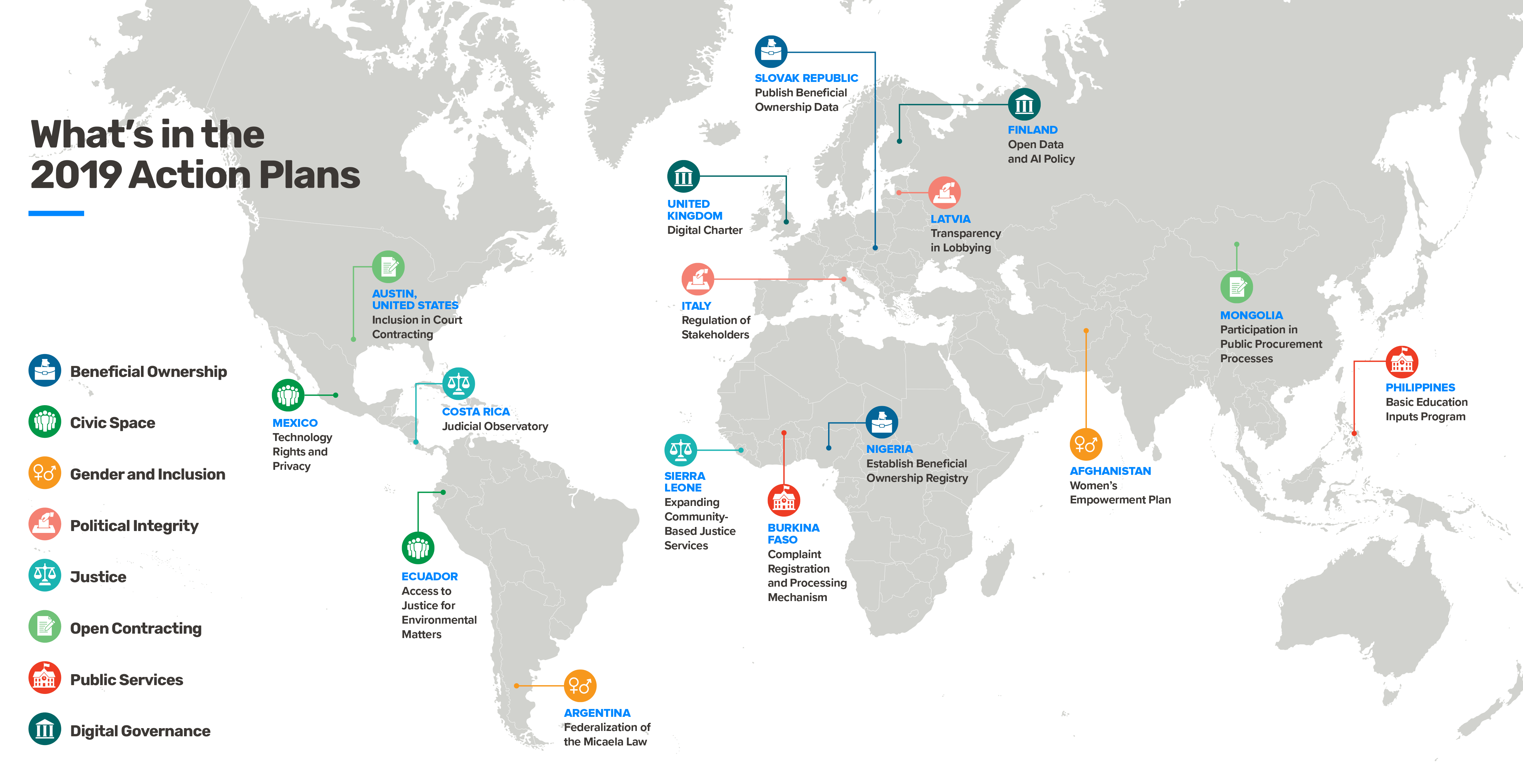
Featured Commitments in Selected Policy Areas
 Beneficial Ownership
Beneficial Ownership
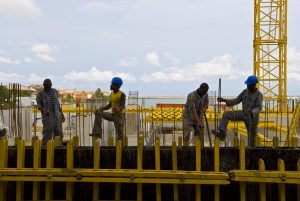
Nigerian construction workers on site. Nigeria’s new registry will publicly disclose beneficial owners in various industries including construction and extractives.PHOTO: Credit: Arne Hoel / World Bank
In most countries, a company can be formed without disclosing the identity of the individual who ultimately controls or profits from the business. This makes anonymous company ownership an effective way to mask corruption, evade taxes, and launder money. Beneficial ownership transparency has proven effective in combating these criminal activities by allowing civil society, journalists, and oversight bodies to investigate suspicious company activities, link this activity to company owners, and ultimately retain public funding from these companies. While still a frontier for much of the world, beneficial ownership transparency is one of the fastest growing areas among OGP members. The following are examples of beneficial ownership commitments from 2019 action plans.
In 2019:
10 members have made commitments in beneficial ownership
13 beneficial ownership commitments are included in action plans
|
 Nigeria Nigeria
Establish Beneficial Ownership Registry
Nigeria’s lack of commercial due diligence requirements has enabled money laundering, drug trafficking, terrorism, and grand corruption. To address these issues, Nigeria made a commitment in its 2017 OGP action plan to collect and disclose beneficial ownership information. Although a website was launched to house data for the extractives sector, the required legislationCreating and passing legislation is one of the most effective ways of ensuring open government reforms have long-lasting effects on government practices. Technical specifications: Act of creating or r... was not adopted. In 2019, Nigeria committed to push ahead with legally requiring the collection of beneficial ownership information and publishing it on an open register according to international standards. In August of 2020, President Muhammadu Buhari signed the new beneficial ownership registry into law as part of the Companies and Allied Matters Act, 2020 (CAMA). The government plans to raise awareness of the register and train people on to use it. Altogether, this reform could mobilize domestic resources and fight corruption by making it harder for people to use anonymous companies to avoid taxation and contribute to illicit financial flows.
Action Plan: 2 (2019-2021) Commitment: NG0020
|
 Slovak Republic Slovak Republic
Publish Beneficial Ownership Data
The Slovak Republic will build on beneficial ownership reforms in the country’s previous action plan by being the first country to commit to full implementation of the “Beneficial Ownership Transparency Disclosure Principles.” These principles—signed by a coalition of OGP member countries—aim to create a new global standard for increasing corporate transparency and decreasing the misuse of funds. To achieve this, the government will modify its national framework for beneficial ownership and expand the disclosure of data beyond legal entities receiving public funds to include all legal entities, public authorities, and entrepreneurs.
Action Plan: 4 (2019-2021) Commitment: SK0129
|
 Civic Space
Civic Space

Activists link together to protest. The 2019 OGP Global Report found that while there are a considerable number of promising commitments related to freedom of associationFreedom of association — the right to join a formal or informal group to take collective action — is a universal right and can be used as a mechanism for public accountability. Technical specifica... More and freedom of expressionJournalists and activists are critical intermediaries connecting public officials with citizens and serving as government watchdogs, and their rights and safety need to be protected. Technical specifi... More, there is still an underutilization of OGP action plans to address issues related to civic space.PHOTO: Credit: Jacob Lund
Civic space—the practices that allow citizens and civil society to exercise their civil and political rights, including freedom of expression, assembly, and association—is both the foundation and goal of open government. A resilient and unrestricted civil society is necessary to foster more open, responsive, and accountable governments. Yet across many countries, civic space continues to shrink, which erodes civil society’s ability to operate freely. While many OGP members have made commitments to address civic space concerns, roughly half of OGP countries still face challenges such as regular harassment of activists and journalists, barriers to participation and free assembly, and excessive use of surveillance and data privacy violations. The following examples highlight how members have used their 2019 action plans to address these issues.
In 2019:
6 members have made commitments in civic space
6 civic space commitments are included in action plans
|
 Mexico Mexico
Technology Rights and Privacy
In 2017, a New York Times article revealed that the Mexican government had spent US$80 million over 18 months on spyware to surveil lawyers, journalists, and human rightsAn essential part of open government includes protecting the sacred freedoms and rights of all citizens, including the most vulnerable groups, and holding those who violate human rights accountable. T... defenders. The scandal provoked public outcry. Over 200 civil society organizations demanded better government accountability, including those involved in developing Mexico’s OGP action plan. This 2019 commitment seeks to address the lack of regulationGovernment reformers are developing regulations that enshrine values of transparency, participation, and accountability in government practices. Technical specifications: Act of creating or reforming ... and supervision of government digital surveillance. The commitment will establish a group of experts from a variety of sectors and government agencies to analyze and modify regulations on the use of surveillance in private communications. All changes will be made in accordance with existing national and international human rights standards.
Action Plan: 4 (2019-2021) Commitment: MX0081
|
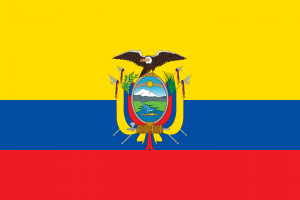 Ecuador Ecuador
Access to Justice for Environmental Matters
Ecuadorian legislation does not require the collection or disclosure of information on environmental stewardship. Citizens also lack opportunities to participate in environmental issues; typically, they can only do so through environmental impact assessments. To make environmental governance more open and accountable, Ecuador committed to implement the Escazú Agreement, which aims to provide citizens full and effective access to environmental information, opportunities to participate in environmental decision-making, and access to justiceAccessible justice systems – both formal and informal – ensure that individuals and communities with legal needs know where to go for help, obtain the help they need, and move through a system tha... More for environmental matters. A national observatory with members from civil society, academia, and local groups will collaborate with the government to develop a roadmap with concrete proposals to ratify and implement the agreement, and oversee its implementation.
Action Plan: 1 (2019-2021) Commitment: EC0004
|
 Gender and Inclusion
Gender and Inclusion

Students of National Institute of Management and Administration in Kabul. One of the indicators specified in the Women’s Empowerment Plan of Afghanistan is the inclusion of gender equality issues in the educational curriculum.
Opening up government is an underexplored means of accelerating gender equality and closing critical gaps in information, access, and participation for marginalized groups. When the perspectives of women, girls, and those across the gender and sexual identity spectrum are part of open government, they bring critical perspectives, knowledge, and skills to increase the potential of reforms. Many OGP members have made important strides to include women in the OGP process and to address gender through commitments. In 2019, gender and inclusion became the fastest growing area across OGP commitments. The following are two examples of these commitments.
In 2019:
12 members have made commitments in gender and inclusion
42 gender and inclusion commitments are included in action plans
|
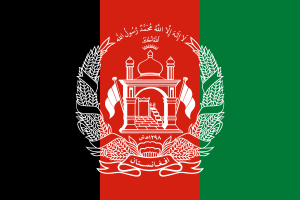 Afghanistan Afghanistan
Women’s Empowerment Plan
Gender equality is a central policy aim of the Afghan government. However, the government has faced obstacles in implementing a national women’s empowerment plan. While the National Action Plan for the Women of Afghanistan gained some ground for gender equality, it suffered from a lack of implementation planning, budget, and monitoring. Having learned from past efforts, the government has committed to establish a joint committee of women ministers and civil society leaders to design a five-year national women empowerment plan with clear budget, monitoring, and evaluation processes. Importantly, this commitment places women at the center of designing and implementing this new plan. In August of 2020, President Ashraf Ghani issued a decree to establish the Women’s High Council, completing one of the milestones of this commitment.
Action Plan: 2 (2019-2021) Commitment: AF0030
|
 Argentina Argentina
Federalization of the Micaela Law
Even though Argentina has ratified most major international and regional human rights treaties, violence against women and girls continues to be a serious and persistent problem. Argentina committed to federalize Micaela Law No. 27499, named after a victim of femicide. The law requires training on gender and violence against women for public servants in all levels of the executive, legislative, and judicial branches. Currently, the Micaela Law applies mostly to national government bodies. The commitment aims to ensure the provision’s adoption and implementation by all provincial governments, as well as share information from provincial agencies so citizens can monitor the law’s implementation.
Action Plan: 4 (2019-2021) Commitment: AR0091
|
 Political Integrity
Political Integrity

Latvian Prime Minister Krišjānis Kariņš and Director of State Chancellery Janis Citskovskis meet with OGP Chief Executive Officer Sanjay Pradhan and team to discuss open government strategies in Riga, Latvia.PHOTO: Credit: Valsts kanceleja/ State Chancellery of Latvia
Political activity requires financing. Yet politicians can misuse financing to distort policy outcomes, thereby threatening democracy. Transparent and accountable political financeProviding for transparency in the funding of campaigns, political parties, and democratic politics is an essential accountability mechanism for democratic government and is a growing focus area in OGP... More practices can help level the political playing field and keep criminal money out of politics. The following are examples of political integrity commitments from 2019 action plans.
In 2019:
11 members have made commitments in political integrity
14 political integrity commitments are included in action plans
|
 Latvia Latvia
Transparency in Lobbying
A lack of lobbyingLobbying transparency allows the public to ensure that there is diversity of participation and contribution to public decision-making. Technical specifications: Policies and actions affecting lobbying... transparency in the parliament has led to high levels of public distrust. The government has tried to address this through legislation over the last ten years. To achieve this long sought-after aim, the government formed the Lobbying Transparency Working Group to create and present a lobbying transparency law to the parliament. To facilitate effective implementation of the law, the government has specifically committed to a public awareness campaign and will add the topic of lobbying transparency to public administration training for high-level public officials. This multi-part approach aims to increase public knowledge of how the lobbying process works, who influences government decision-making, and how to get involved.
Action Plan: 4 (2019-2021) Commitment: LV0042
|
 Italy Italy
Regulation of Stakeholders
In Italy, transparency requirements for government lobbying are limited and inconsistent across ministries. As a result, the public lacks information about who is influencing policy-making. To address this issue, the Italian government committed to form a working group of civil society and government representatives to design a public, standardized register of stakeholders across the government. The working group will propose a lobbying code of conduct, guidelines on how to use the register, and publish decision-makers’ meetings and agendas. The City of Rome also committed to establish a register and procedures to ensure transparent lobbying. Uniform guidelines and greater public information on lobbying aims to increase citizens’ understanding of who is influencing policy making and how to engage in the process.
Action Plan: 4 (2019-2021) Commitment: IT0061
|
 Justice
Justice
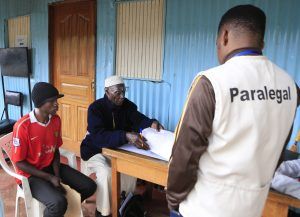
Community paralegals conduct outreach in the Mamusa community. Sierra Leone hopes to ensure access to justice by expanding community-based justice services.PHOTO: Credit: Aubrey Wade/Namati
To achieve open government, citizens must have the ability to seek and obtain remedy for grievances and protect their rights against infringement by governments, corporations, or other citizens. A fair, accessible, and efficient justice system offers citizens this opportunity through open and accountable justice institutions, effective legal assistance when necessary, and enforceable constitutional and human rights. Justice is a growing focus across OGP action plans, with several countries making commitments to expand accountability and inclusion within their justice systems. The following are examples from 2019 action plans.
In 2019:
16 members have made commitments in justice
31 justice commitments are included in action plans
|
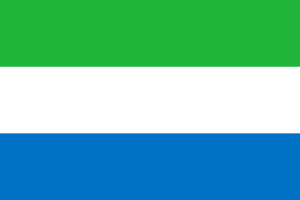 Sierra Leone Sierra Leone
Expanding Community-Based Justice Services
The Sierra Leonean justice system’s lack of resources, capacity, and staffing significantly inhibits citizens’ access to justice. Moreover, citizens far more frequently resolve conflicts through community-level mediation than through courts. To better accommodate citizens’ needs and preferences, the government has committed to develop a national access to justice policy and a directorate for community-based justice services. The government will train 300 community-based justice providers and map available mechanisms for redressing administrative and personal grievances. Additionally, the government will establish a Justice Innovation Centre to facilitate interaction between community justice and formal justice systems. Finally, the government committed to establish a legal assistance fund to assist community negotiations with large-scale land investors. These measures will strengthen the community justice mechanisms predominantly used by Sierra Leone’s most vulnerable citizens.
Action Plan: 3 (2019-2021) Commitment: SL0022
|
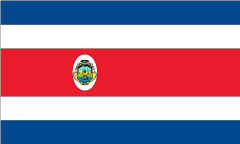 Costa Rica Costa Rica
Judicial Observatory
A backlog in court cases has long delayed justice for Costa Ricans and put strain on judges and other court officials. Although the judiciaryWhile a majority of open government reforms occur within the executive branch, OGP members are increasingly taking on commitments to increase the openness of the judicial branch. Technical specificati... publishes information online on cases, budgets, and staffing, the information is not structured so that citizens can easily monitor court performance. To improve citizens’ access to information, Costa Rica plans to work with citizens to visualize judicial information—such as case status and audit findings—on an easy-to-use website. The new platform will enable the public to track performance by region, circuit, court, and subject area. Citizens will also be able to regularly discuss the data with government officials and make recommendations for reducing the backlog.
Action Plan: 4 (2019-2021) Commitment: CR0066
|
 Open Contracting
Open Contracting
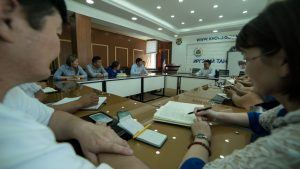
The Mongolian EducationAccountability within the public education system is key to improving outcomes and attainment, and accountability is nearly impossible without transparent policies and opportunities for participation ... Agency holds a meeting of local stakeholders in Khovd. Mongolia’s featured commitment aims to increase participation from citizens and civil society organizations in the participation process.PHOTO: Credit: Morgana Wingard for OGP
Worldwide, governments spend about 9.5 trillion (USD)—or 15% of global GDP—on contracts with companies to procure goods and services and procurement is often cited as the single largest corruption risk for governments. Publishing government contracts and contracting data coupled with open and fair contract bidding processes can help reduce this risk by allowing citizens and civil society to monitor who their government pays, and how much. It can also result in significant improvements to government efficiency and value for money, and can level the playing field for business, especially for smaller firms. Open contracting has been a popular area in OGP for several years, with many members focusing on information disclosure. However, new commitments show a growth of inclusive approaches to designing and monitoring contracting processes.
In 2019:
10 members have made commitments in open contracting
11 open contracting commitments are included in action plans
|
 Mongolia Mongolia
Participation in Public Procurement Processes
Mongolia’s procurement process is inefficient in part due to a lack of transparency and public oversight. To address this issue, the Ministry of Finance will publish procurement data online and build a portal to receive public feedback. A national consulting team will design public monitoring processes for health and transportation sector procurement, to be carried out by participatory monitoring teams in each province. A working group will use information from community scorecards to identify improvement opportunities. The Ministry will report on participation in the procurement process biannually. The commitment aims to make public-spending more efficient and strengthen public trust in government procurement.
Action Plan: 3 (2019-2021) Commitment: MN0038
|
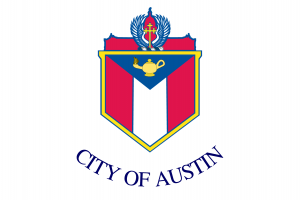 Austin, United States Austin, United States
Inclusion in Court Contracting
The Downtown Austin Community Court (DACC) contracts with local nonprofits to provide services to people who are transitioning into housing, with the goal of helping them achieve greater self-sufficiency. Currently, the city purchases these services through a closed, one-size-fits-all contracting approach. The majority of defendants who come before the DACC are experiencing homeless, and a disproportionate number of offenses are committed by a small number of defendants who repeatedly cycle through the criminal justice system at a high cost to community services. By including feedback from defendants, local advocates, and the general public at every step of the procurement process, the city aims to improve civic participation, add transparency to the decision-making process, and promote better use of city resources. Accountability efforts will include biweekly meetings of the Austin Homeless Advisory Committee, convened by the DACC and attended by community and city department representatives.
Action Plan: 2 (2019-2021) Commitment: AUS0007
|
 Public Service Delivery
Public Service Delivery
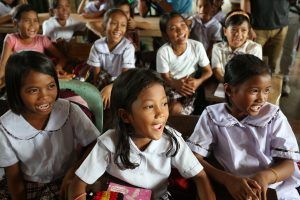
Students from the Bislig Elementary School in Tanauan City, Leyte province, Philippines. Public services continue to be a popular area of work for OGP members.PHOTO: Credit: World Bank
Efficient, accessible, and open provision of critical public services—such as healthcare, education, and water and sanitation—can transform citizens’ daily lives and increase their trust in government. Given the tremendous impact of these services on communities and the sizable proportion of public spending they represent, citizens have a right to participate in their government’s selection of public service projects and monitor their implementation. Integrating open government principles in service delivery can expand the reach of services, enable feedback mechanisms, and allow citizens to monitor the delivery and quality of the services. The following are examples of commitments on service delivery found in 2019 action plans.
In 2019:
27 members have made commitments in public services
78 public services commitments are included in action plans
|
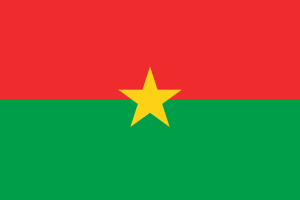 Burkina Faso Burkina Faso
Complaint Registration and Processing Mechanism
Citizens in Burkina Faso have limited opportunities to report public service delivery issues. Thus, the government lacks citizen input on how to improve delivery. Therefore, the government will pilot a complaint recording and processing system in four public service departments. Government services under consideration for this program include education, health, civil service, and justice. First, the government will establish the legal framework and technical resources necessary for an effective complaint response system. The government will then train employees and create a guide to inform government responses to public service complaints. Finally, the government will increase public awareness of the complaint management system. Increased communication between the public and government will facilitate more transparent and effective public service delivery in Burkina Faso.
Action Plan: 2 (2019-2021) Commitment: BF0019
|
 Philippines Philippines
Basic Education Inputs Program
Currently, the national government faces challenges obtaining the necessary information and data from public schools to deliver targeted basic education services. Challenges include schools’ geographical isolation, limited access to communication, and poor infrastructure. To address these challenges, the Department of Education will adopt a participatory platform for monitoring and evaluation of basic education data, such as classroom size, school infrastructure, teaching and learning materials, and teacher training. This will strengthen citizens’ ability to track government investments in schools and ensure that funding reaches the right schools, meets the needs on the ground, and serves the intended learning outcomes.
Action Plan: 5 (2019-2021) Commitment: PH0058
|
 Digital Governance
Digital Governance

The 2019-2020 OGP Co-Chair Vision identifies digital governance as a priority and aims to make it a practical aspect of OGP work.PHOTO: Credit: UK Black Tech
As advanced technology continues to change society, a next generation of digital policy issues has emerged. Technologies such as big data and algorithms can drive more effective policy decisions, and social networks can help governments become more efficient and interconnected. However, the corrosive effects of fake news and hate speech, unethical or discriminatory use of data, and state surveillance threaten fair and open societies. Digital governance is still a frontier issue in OGP, but the following are some of the commitments members made in 2019 to tackle these issues.
In 2019:
4 members have made commitments in digital governance
4 digital governance commitments are included in action plans
|
 United Kingdom United Kingdom
Digital Charter
Without proper regulation, people can use the internet to undermine civil discourse, credible news, and intellectual property rights. In response to these concerns, the government will work with civil society—including under-represented groups—to develop a “Digital Charter.” The charter will establish norms and rules for the online sphere. In addition, the new Centre for Data Ethics and Innovation will allow citizens to advise the government and regulators on the implications of new data-driven technologies, such as artificial intelligence.
Action Plan: 4 (2019-2021) Commitment: UK0091
|
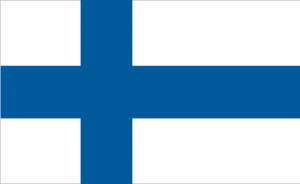 Finland Finland
Open Data and AI Policy
High-quality open dataBy opening up data and making it sharable and reusable, governments can enable informed debate, better decision making, and the development of innovative new services. Technical specifications: Polici... and clear ethical guidelines for the use of artificial intelligence (AI) is an important step to increasing data usability and preventing discrimination. This commitment will put in place easy-to-use, developer-friendly interfaces to share data resources with the public. The process aims to motivate data producers to improve the quality and usability of data and data resources. Additionally, this commitment will create guidelines that will promote an ethically, financially, and socially sustainable data and AI policy. Developers will also consider international human rights conventions and UN recommendations on the ethics of AI, as well as data security as a part of the preparatory process.
Action Plan: 4 (2019-2023) Commitment: FI0033
|
Other Commitments to Watch
The following commitments are also among the many worth following.
Anti-corruption
Finland – Transparency Register
The government will consult civil society to draft legislation that will create a public register of government lobbyists.
Action Plan: 4 (2019-2023) Commitment: FI0032
Norway – Beneficial Ownership Register
The government will establish a public beneficial ownership register that includes corporations and enterprises in the country.
Action Plan: 4 (2019-2021) Commitment: NO0061
Paris, France – Open Contracting Collaboration
The City of Paris aims to simplify and expand open public procurementTransparency in the procurement process can help combat corruption and waste that plagues a significant portion of public procurement budgets globally. Technical specifications: Commitments that aim t... More data by establishing internal and multi-stakeholder working groups to design data management and publication strategies.
Action Plan: 2 (2019-2021) Commitment: PAR0008
Philippines – Open Contracting Data
Civil society and the government will work together to improve the quality of public procurement data by requiring more procuring government entities to publish data, expanding requirements for publishing machine-readable data, and improving data literacy and auditsInstitutional and legal frameworks are necessary for providing assurance of the integrity of financial information and of compliance with budgetary rules and procedure. Technical specifications: These....
Action Plan: 5 (2019-2021) Commitment: PH0066
Extractive IndustriesApplying open government values of transparency, participation, and accountability to extractive industries can decrease corruption, safeguard community interests and needs, and support environmental ... and Natural Resources
Mexico – Beneficial Ownership
Civil society and the government will collaboratively design a plan to require companies in the extractives sector to publish beneficial ownership information.
Action Plan: 4 (2019-2021) Commitment: MX0085
Nigeria – Open Contracting and Licensing in Extractives
The government will require state-owned enterprises in the extractives sector to publish their contracts.
Action Plan: 2 (2019-2021) Commitment: NG0018
Luxembourg – Transparent Climate Change Action Plans
The government will publish information and consult civil society regarding its national action plans adopted under the Paris Climate Agreement.
Action Plan: 1 (2019-2021) Commitment: LU0004
Deliberation and Participation
Bosnia and Herzegovina – Civil Society Participation in Policymaking
The government will hold workshops to enable civil society organizations to register and participate online in drafting regulations.
Action Plan: 1 (2019-2021) Commitment: BA0005
Costa Rica – Rural Development Councils
The government will strengthen councils’ participatory processes, provide training on open government, and improve communication channels to strengthen public participationGiving citizens opportunities to provide input into government decision-making leads to more effective governance, improved public service delivery, and more equitable outcomes. Technical specificatio... and inclusion.
Action Plan: 4 (2019-2021) Commitment: CR0062
Germany – Participatory Foreign Policy
The Federal Foreign Office will improve access to its digital archive of historic documents and expand opportunities for public participation, such as hackathons and blog-based debates.
Action Plan: 2 (2019-2021) Commitment: DE0017
Iasi, Romania – Participatory Policymaking
The City of Iasi will create a formal mechanism for policy co-creation between citizens and the government.
Action Plan: 1 (2019-2021) Commitment: IAS0003
Italy – Participation Support
To strengthen public participation in policy-making, the government will establish guidelines and training on how to conduct public consultations. The government will also create an online portal that aggregates open calls for public input from across the government.
Action Plan: 4 (2019-2021) Commitment: IT0060
Latvia – Open Municipal Government
The government will provide municipalities with guidelines and training on public engagement to increase citizen participationAccording to OGP’s Articles of Governance, citizen participation occurs when “governments seek to mobilize citizens to engage in public debate, provide input, and make contributions that lead to m... More through channels such as participatory budgeting and referenda.
Action Plan: 4 (2019-2021) Commitment: LV0043
Sweden – Sectoral Dialogues with Civil Society
The government will assess collaboration between the government and civil society through biannual, focused discussions using a process developed with civil society during previous action plans.
Action Plan: 4 (2019-2021) Commitment: SE0020
United Kingdom – Local Deliberative Democracy
The government will establish local forums for citizens to deliberate and make recommendations on policy design and delivery.
Action Plan: 4 (2019-2021) Commitment: UK0097
Gender
Ecuador – Eradication of Violence Against Women
Civil society and the government will cocreate a national plan to eradicate violence against women and members of the LGBTQ+ community.
Action Plan: 1 (2019-2021) Commitment: EC0007
Sierra Leone – Gender Equality and Gender-Based ViolenceReforms that combat gender-based violence are essential for fostering an inclusive society and government that respects human rights and promotes gender equality. Technical specifications: Commitments... More
The government will implement a Gender Equality and Women’s Empowerment Policy that will require the application of a gender perspective in policy-making and resource allocation based on gender-disaggregated data.
Action Plan: 3 (2019-2021) Commitment: SL0027
Sri Lanka – Participatory Approaches to Ending Violence against Women
The government and civil society will collaboratively implement and monitor “equal pay for equal work” requirements, establish sexual harassment committees for public sector workplaces, and amend laws to promote women representation in parliament and equal access to land.
Action Plan: 2 (2019-2021) Commitment: LK0035
Justice
Argentina – Legal Needs Survey
Civil society and the government will conduct two legal need surveys to collect information on unmet legal needs in Argentina. The government will make survey results available to the public in an open format and act on the findings to improve access to justice.
Action Plan: 4 (2019-2021) Commitment: AR0083
Burkina Faso – Access to Justice for Vulnerable People
The government will expand legal aidMore and better information about aid helps partner countries and donor institutions plan and manage aid resources more effectively, parliaments and civil society to hold governments accountable for t... funding, which will be used to increase the number of aid recipients, offer workshops in prisons and in the community on accessing legal aid, and train criminal justice system employees on legal aid provision.
Action Plan: 2 (2019-2021) Commitment: BF0020
Jalisco, Mexico – Expert Witness Selection
The government will collaborate with citizens to establish a transparent process for selecting expert witnesses in court to avoid excessive discretion and conflicts of interestA key part of anti-corruption involves preventing or revealing conflicts of interest — when a public official is in a position to use public office for personal or private gain. Technical specificat....
Action Plan: 2 (2019-2021) Commitment: JAL0010
Mongolia – Public Legal Knowledge
The government and civil society aim to increase public legal knowledge through legal guides and training that specifically consider the needs of youthRecognizing that investing in youth means investing in a better future, OGP participating governments are creating meaningful opportunities for youth to participate in government processes. Technical ... More, the elderly, and persons with disabilities.
Action Plan: 3 (2019-2021) Commitment: MN0040
Open Data
Austin, United States – Public Safety Data Analysis
Civil society and the City of Austin will translate the city’s Annual Crime Data file into more accessible formats, such as data maps with improved legends.
Action Plan: 2 (2019-2021) Commitment: AUS0009
Denmark – Government Data Platform
To increase citizens’ trust, the government will create an online portal for the public to view all of the information the government holds about them in one place.
Action Plan: 4 (2019-2021) Commitment: DK0068
Greece – Open Immigration Data
The government will increase the transparency of immigration information related to international agreements, domestic law, and public communications.
Action Plan: 4 (2019-2021) Commitment: GR0067
United States – Open Data for Public Health
The government will host innovation challenges to leverage open data to encourage value-based healthcare and foster cocreated public health solutions for the opioid crisis and Lyme disease.
Action Plan: 4 (2019-2021) Commitment: US0110
Public Service Delivery
Afghanistan – Private and Public Health Centers
Members of the public, civil society, and the government will collaboratively design and monitor minimal standards for health centers to improve health service delivery.
Action Plan: 2 (2019-2021) Commitment: AF0027
Nariño, Colombia – Community Water Management
The government of Nariño will strengthen community water management by providing open water data, facilitating community meetings and training, and issuing an official decree acknowledging community water management rights.
Action Plan: 1 (2019-2021) Commitment: NR0002
Peru – Online Citizen Drug Price Portal
The government will improve the quality of health information by enabling citizens to submit complaints and corrections related to the price of medicines at various pharmacies on an online portal.
Action Plan: 4 (2019-2021) Commitment: PE0088
Slovak Republic – Educational Resources Portal
The government will work with educators and civil society in developing a process to generate open-source learning materials for its online education resource portal.
Action Plan: 4 (2019-2021) Commitment: SK0130
Acknowledgements
This publication was developed by the Analytics & Insights team of the OGP Support UnitThe OGP Support Unit is a small, permanent group of staff that work closely with the Steering Committee and the Independent Reporting Mechanism to advance the goals of the Open Government Partnership....:
Joseph Foti, Chief Research Officer
Sandy Arce, Program Officer
Renzo Falla, Senior Research Officer
Jessica Hickle, Research Associate
Amelia Katan, Research Associate
Special Thanks: We want to thank our colleagues in the Support Unit and IRM staff for their help.
Copy-edit: Amalia Pleake-Tamm
Design: Richard Scott
Translation: n+1 Language Services (Français); Alejandra Calzada Vázquez Vela and Andreína Pérez (Español)
Open Government Partnership (OGP) ofrece a los reformadores del Gobierno y de la sociedad civil una oportunidad para lograr que los Gobiernos sean más transparentes, participativos y que rindan cuentas. De forma coordinada, los Gobiernos y la sociedad civil de 78 países y cada vez más Gobiernos locales cocrean planes de acción de una duración de dos años con compromisos concretos sobre diversas áreas temáticas. El desarrollo e implementación de estos compromisos representa la actividad principal de OGP. Más adelante, los compromisos son monitoreados por el Mecanismo de Revisión Independiente (IRM, por sus siglas en inglés).
Esta publicación incluye compromisos tomados de los planes de acción que los miembros de OGP entregaron en 2019.* La primera sección destaca dos compromisos de cada una de las ocho áreas de política definidas en la estrategia a tres años de OGP: transparencia en los beneficiarios reales, espacio cívico, género e inclusión, integridad política, justicia, contratación abierta, provisión de servicios públicos y gobernanza digital. La segunda sección incluye otros compromisos a tomar en cuenta, uno de cada plan de acción. Estos compromisos demuestran la variedad de retos de política pública que los miembros de OGP actualmente enfrentan, como inspiración para los futuros procesos de cocreación.
* Nota: Esta publicación incluye compromisos sobre los planes de acción que recibimos entre el 1 de enero de 2010 y el 31 de diciembre de 2019. Los planes de acción entregados después del 31 de diciembre de 2019 pueden consultarse en el sitio web de OGP, pero no en este documento. El Mecanismo de Revisión Independiente (IRM, por sus siglas en inglés) no evaluó los compromisos aquí mencionados y este documento de ninguna manera reemplaza el papel del IRM en la evaluación de la calidad y el nivel de ambición de los compromisos como parte del proceso de OGP.

Compromisos destacados en áreas políticas seleccionadas
 Beneficiarios reales
Beneficiarios reales

Trabajadores de construcción en Nigeria. El nuevo registro en Nigeria dará a conocer públicamente a los beneficiarios reales en diversas industrias como por ejemplo la construcción y las industrias extractivas.PHOTO: Credit: Arne Hoel / World Bank
En la mayoría de los países pueden crearse empresas sin la necesidad de revelar la identidad de la persona que, en última instancia, controla o recibe sus ganancias. Así, las empresas anónimas son una forma efectiva de enmascarar casos de corrupción, evadir impuestos y lavar dinero. La transparencia en los beneficiarios reales ha demostrado ser efectiva en el combate a estos delitos, pues permite a la sociedad civil, periodistas y organismos encargados de la supervisión investigar actividades sospechosas, vincularlas a los dueños de las empresas y, finalmente, evitar la asignación de fondos públicos a estas empresas. La transparencia de los beneficiarios reales es una de las áreas de mayor crecimiento entre los miembros de OGP, aun cuando sigue siendo un tema emergente para gran parte del mundo. Los siguientes son ejemplos de compromisos sobre beneficiarios reales que tomamos de los planes de acción de 2019.
En 2019:
10 miembros han asumido compromisos en materia de beneficiarios reales
13 compromisos en materia de beneficiarios reales están incluidos en los planes de acción
|
 Nigeria Nigeria
Crear un registro de beneficiarios reales
La falta de un proceso adecuado de diligencia debida en Nigeria ha permitido el lavado de dinero, tráfico de drogas, terrorismo y corrupción a gran escala. Para atender estos problemas, Nigeria estableció en su plan de acción de OGP el compromiso de reunir y dar a conocer información sobre los beneficiarios reales. Aunque Nigeria ya contaba con un sitio web para alojar datos del sector extractivo, no se había adoptado la legislación asociada. En 2019, Nigeria se comprometió a impulsar un requisito legal de exigir la publicación de información sobre los beneficiarios reales en un registro abierto, alineado a los estándares internacionales. En agosto de 2020, el presidente Muhammadu Buhari promulgó el nuevo registro de beneficiarios reales como parte de la Ley de Empresas y Asuntos Aliados de 2020 (CAMA por sus siglas en inglés). El Gobierno sensibilizará y capacitará a las personas sobre cómo utilizar el registro. En su conjunto, estas reformas podrían movilizar recursos nacionales y luchar contra la corrupción, evitando que las personas utilicen empresas anónimas para evadir impuestos y contribuir a flujos financieros ilícitos.
Plan de acción: 2 (2019-2021) Compromiso: NG0020
|
 República Eslovaca República Eslovaca
Publicar datos de beneficiarios reales
Partiendo de reformas sobre beneficiarios reales establecidas en el plan de acción anterior, la República Eslovaca será el primer país en comprometerse a la implementación total de los “Principios de transparencia de los beneficiarios reales”. Estos principios — firmados por una coalición de miembros de OGP — buscan crear un nuevo estándar global para incrementar la transparencia corporativa y reducir el mal uso de fondos. Con ese fin, el Gobierno modificará sus marcos legales sobre el tema de beneficiarios reales y ampliará la publicación de datos más allá de las entidades legales que reciben fondos públicos hacia todas las entidades legales, autoridades públicas y empresarios.
Plan de acción: 4 (2019-2021) Compromiso: SK0129
|
 Espacio cívico
Espacio cívico

Activistas se unen para protestar. El Informe Global de OGP publicado en 2019 encontró que, si bien hay una cantidad considerable de compromisos prometedores relacionados con la libertad de asociación y la libertad de expresión, todavía hay una subutilización de los planes de acción de OGP para abordar los problemas relacionados con el espacio cívico.PHOTO: Credit: Jacob Lund
El espacio cívico, es decir las prácticas que permiten a la ciudadanía y sociedad civil ejercer sus derechos cívicos y políticos, incluyendo la libertad de expresión, reunión y asociación, es tanto el fundamento como la meta del gobierno abierto. Se necesita de una sociedad civil más resiliente e irrestricta para fomentar Gobiernos más abiertos, receptivos y que rindan cuentas. Sin embargo, en muchos países el espacio cívico se ha reducido, debilitando la capacidad de la sociedad civil de operar libremente. Aunque muchos miembros de OGP han establecido compromisos para fortalecer el espacio cívico, cerca de la mitad de los países miembros aún enfrentan retos importantes en el tema, por ejemplo acoso a activistas y periodistas, barreras a la participación y la libre asociación, uso excesivo de prácticas de vigilancia y violaciones a la privacidad de datos. Los siguientes son ejemplos de cómo los miembros de OGP han utilizado sus planes de acción para atender dichos temas.
En 2019:
6 miembros han asumido compromisos en materia de espacio cívico
6 compromisos en materia de espacio cívico están incluidos en los planes de acción
|
 México México
Derechos tecnológicos y privacidad
En 2017, un artículo del New York Times reveló que el Gobierno de México había gastado 80 millones de dólares en un periodo de 18 meses en software para espiar a abogados, periodistas y defensores de los derechos humanos. El escándalo generó protestas públicas. Más de 200 organizaciones de la sociedad civil exigieron al Gobierno rendir cuentas, incluyendo a aquellos involucrados en el plan de acción de OGP de México. Este compromiso de 2019 busca abordar la falta de regulación y supervisión de la vigilancia digital del Gobierno. El compromiso establecerá un grupo de expertos de diversos sectores e instituciones de Gobierno para analizar y modificar regulaciones sobre el uso de vigilancia en las comunicaciones privadas. Todos los cambios se realizarán de acuerdo con los estándares de derechos humanos nacionales e internacionales.
Plan de acción: 4 (2019-2021) Compromiso: MX0081
|
 Ecuador Ecuador
Acceso a justicia en materia ambiental
La legislación de Ecuador no exige la recolección y publicación de información sobre conservación ambiental. Además, los ciudadanos no tienen la oportunidad de participar en temas ambientales; en general, la población solo puede participar a través de las evaluaciones de impacto ambiental. Con el fin de promover una gobernanza más abierta y responsable, Ecuador se comprometió a implementar el Acuerdo de Escazú, el cual busca ofrecer a la ciudadanía acceso total a información ambiental, la oportunidad de participar en la toma de decisiones en materia ambiental y acceso a la justicia ambiental. Un observatorio nacional, el cual incluye miembros de la sociedad civil, la academia y grupos locales, colaborará con el Gobierno en el desarrollo de una hoja de ruta con propuestas concretas para ratificar e implementar el acuerdo, así como supervisar su implementación.
Plan de acción: 1 (2019-2021) Compromiso: EC0004
|
 Género e inclusión
Género e inclusión

Estudiantes del Instituto Nacional de Gestión y Administración en Kabul. Uno de los indicadores especificados en el Plan de empoderamiento de la mujer de Afganistán es la inclusión de cuestiones de igualdad de género en el plan de estudios educativo.
Abrir el Gobierno es un medio poco utilizado para acelerar la equidad de género y cerrar la brecha de información, acceso y participación de grupos marginados. Cuando las perspectivas de las mujeres, niñas y personas en el espectro de la identidad de género y sexual son parte del gobierno abierto, aportan una perspectiva, conocimiento y habilidades clave para aumentar el potencial de las reformas. Muchos miembros de OGP han logrado avances importantes en la inclusión de las mujeres en el proceso de OGP y de atender el tema de género en compromisos. En 2019, el género y la inclusión fueron las áreas de mayor crecimiento en los compromisos de OGP. A continuación presentamos dos ejemplos de estos compromisos.
En 2019:
12 miembros han asumido compromisos en materia de género e inclusión
42 compromisos en materia de género e inclusión están incluidos en los planes de acción
|
 Afganistán Afganistán
Plan de empoderamiento de las mujeres
La equidad de género es una política central del Gobierno afgano. Sin embargo, el Gobierno se ha enfrentado a obstáculos en la implementación del plan nacional de empoderamiento de las mujeres. Aunque el Plan nacional para las mujeres de Afganistán ganó terreno en la equidad de género, sufrió de la falta de planeación para la implementación, presupuesto y monitoreo. Aprendiendo de esfuerzos pasados, el Gobierno se comprometió a establecer un comité conjunto de mujeres ministras y líderes de la sociedad civil para diseñar un plan de empoderamiento a las mujeres con un presupuesto claro, así como un proceso de monitoreo y evaluación. Cabe mencionar que este compromiso sitúa a las mujeres en el centro del diseño e implementación de este nuevo plan. En agosto de 2020, el presidente Ashraf Ghani emitió un decreto para establecer el Consejo Superior de Mujeres, completando uno de los hitos de este compromiso.
Plan de acción: 2 (2019-2021) Compromiso: AF0030
|
 Argentina Argentina
Federalización de la ley Micaela
Aunque Argentina ha ratificado la mayoría de los tratados internacionales y regionales sobre derechos humanos, la violencia contra las mujeres y niñas sigue siendo un problema serio. Argentina se comprometió a federalizar la Ley Micaela No. 27499, la cual lleva el nombre de una víctima de feminicidio. Esta ley exige la capacitación de funcionarios en todos los niveles de los poderes ejecutivo, legislativo y judicial sobre género y violencia contra las mujeres. Actualmente, la ley Micaela aplica sobre todo a las instituciones del Gobierno nacional. El compromiso del Gobierno es asegurar la adopción de la disposición y la implementación por todos los Gobiernos provinciales, así como compartir información de las instituciones provinciales de manera que la ciudadanía pueda monitorear la implementación de la ley.
Plan de acción: 4 (2019-2021) Compromiso: AR0091
|
 Integridad política
Integridad política

El primer ministro letón, Krišjānis Kariņš, y el director de la cancillería estatal, Janis Citskovskis, se reúnen con el director ejecutivo de OGP, Sanjay Pradhan, y el equipo de OGP para hablar sobre las estrategias de gobierno abierto en Riga, Letonia.PHOTO: Credit: Valsts kanceleja/ State Chancellery of Latvia
La actividad política requiere de financiamiento. Sin embargo, los políticos pueden hacer mal uso del financiamiento para alterar los resultados de políticas, amenazando la democracia. Las prácticas transparentes de financiamiento pueden ayudar a establecer condiciones equitativas en el ámbito político y evitar que recursos procedentes de actividades ilícitas lleguen a la política. Los siguientes son ejemplos de compromisos de integridad política incluidos en los planes de acción de 2019.
En 2019:
11 miembros han asumido compromisos en materia de integridad política
14 compromisos en materia de integridad política están incluidos en los planes de acción
|
 Letonia Letonia
Transparencia en el cabildeo
La falta de transparencia en el cabildeo en el parlamento ha resultado en niveles altos de desconfianza del público. El Gobierno ha intentado abordar este problema a través de legislaciones en los últimos diez años. Para lograr este objetivo, el Gobierno creó el Grupo de trabajo para la transparencia en el cabildeo, el cual creará y presentará una ley de transparencia del cabildeo al parlamento. Con el fin de facilitar la implementación efectiva de la ley, el Gobierno se comprometió a promover una campaña de sensibilización. Asimismo, incluirá el tema de transparencia en el cabildeo en las capacitaciones a funcionarios de alto nivel. Este enfoque multisectorial tiene como objetivo aumentar el conocimiento público sobre cómo funciona el proceso de cabildeo, quién influye en la toma de decisiones del Gobierno y cómo participar.
Plan de acción: 4 (2019-2021) Compromiso: LV0042
|
 Italia Italia
Regulación de actores
En Italia, los requisitos de transparencia alrededor de las actividades de cabildeo son limitados e inconsistentes entre los ministerios. Como resultado, el público no tiene información sobre los grupos que ejercen influencia en el diseño de políticas. Para atender esta problemática, el Gobierno de Italia se comprometió a conformar un grupo de trabajo con representantes del Gobierno y de la sociedad civil para diseñar un registro público estandarizado de actores. El grupo de trabajo propondrá un código de conducta para las actividades de cabildeo, lineamientos sobre el uso del registro y publicará las reuniones y agendas de los tomadores de decisiones. La Ciudad de Roma también se comprometió a establecer un registro y procedimientos para asegurar que el cabildeo sea transparente. Los lineamientos unificados y la información otorgada al público buscan incrementar el conocimiento de la ciudadanía sobre los grupos que ejercen influencia en el diseño de políticas y cómo participar en el proceso.
Plan de acción: 4 (2019-2021) Compromiso: IT0061
|
 Justicia
Justicia

Asistentes legales comunitarios realizan actividades de divulgación en la comunidad Mamusa. El compromiso de Sierra Leona propone garantizar el acceso a la justicia mediante la expansión de los servicios de justicia basados en la comunidad.PHOTO: Credit: Aubrey Wade/Namati
Para lograr un gobierno abierto, la ciudadanía debe tener la oportunidad de solicitar y obtener remediación cuando presenta denuncias y de proteger sus derechos cuando los Gobiernos, empresas u otros ciudadanos los infrinjan. Los sistemas de justicia accesibles, eficientes y justos ofrecen a la ciudadanía esta oportunidad a través de instituciones de justicia responsables, asistencia legal cuando sea necesario y la aplicación de derechos constitucionales y humanos. La justicia está creciendo como área de enfoque en los planes de acción de OGP, pues diversos países están creando compromisos para mejorar la rendición de cuentas y la inclusión al interior de los sistemas de justicia. Los siguientes son ejemplos tomados de los planes de acción de 2019.
En 2019:
16 miembros han asumido compromisos en materia de justicia
31 compromisos en materia de justicia están incluidos en los planes de acción
|
 Sierra Leona Sierra Leona
Ampliar los servicios de justicia comunitarios
La falta de recursos, capacidad y personal del sistema de justicia de Sierra Leona limitan el acceso de la ciudadanía a la justicia. Es importante notar que la ciudadanía puede resolver conflictos con mucho mayor frecuencia a través de procesos comunitarios de mediación que a través de los tribunales. Para poder atender las necesidades y preferencias de la ciudadanía, el Gobierno se comprometió a desarrollar una política nacional de acceso a la justicia y una dirección de servicios de justicia comunitarios. El Gobierno capacitará a 300 proveedores de servicios de justicia comunitarios y creará conciencia sobre los mecanismos disponibles para resolver quejas personales y administrativas. Además, establecerá un Centro de Innovación Judicial para facilitar la interacción entre el sistema comunitario y el sistema formal de justicia. Finalmente, el Gobierno se comprometió a establecer un fondo de asistencia legal para apoyar negociaciones comunitarias con inversionistas de gran escala. Estas medidas fortalecerán los mecanismos de justicia comunitaria utilizados por los ciudadanos más vulnerables de Sierra Leona.
Plan de acción: 3 (2019-2021) Compromiso: SL0022
|
 Costa Rica Costa Rica
Observatorio judicial
La cantidad de casos acumulados pendientes en Costa Rica ha ocasionado retrasos en el sistema de justicia del país, sobrecargando a los jueces y otros funcionarios de los tribunales. A pesar de que el sistema judicial publica información en línea sobre los casos, presupuestos y su personal, la información no está estructurada de manera que la ciudadanía pueda monitorear el desempeño de los tribunales fácilmente. Con el fin de mejorar el acceso a la información, Costa Rica trabajará en visualizar información judicial, por ejemplo el estado de los casos o los hallazgos de las auditorías, en un sitio web de fácil uso. La nueva plataforma permitirá al público dar seguimiento al desempeño de las cortes por región, circuito, tribunal y tema. Además, los ciudadanos podrán discutir datos con los funcionarios y presentar recomendaciones para reducir el retraso de casos.
Plan de acción: 4 (2019-2021) Compromiso: CR0066
|
 Contratación abierta
Contratación abierta

La Agencia de Educación de Mongolia se reúne con la comunidad local en Khovd. El compromiso destacado de Mongolia tiene como objetivo aumentar la participación de los ciudadanos y las organizaciones de la sociedad civil en los procesos de adquisiciones públicas.PHOTO: Credit: Morgana Wingard for OGP
A nivel mundial, los Gobiernos gastan aproximadamente 9 billones y medio de dólares (15% del PIB mundial) en contratos con empresas para adquirir bienes y servicios. Estos contratos representan el mayor riesgo de corrupción para los Gobiernos. La publicación de contratos del Gobierno y el establecimiento de procesos de licitación abiertos y justos puede reducir este riesgo, permitiendo a la ciudadanía y a la sociedad civil monitorear los pagos que sus Gobiernos realizan. Además, lo anterior puede resultar en mejoras a la eficiencia del Gobierno y relación calidad-precio, además de establecer condiciones equitativas para las empresas, incluso para las pequeñas. La contratación abierta ha sido un tema popular en OGP desde hace varios años y muchos miembros se han enfocado en publicar información. Más recientemente, los nuevos compromisos se empiezan a enfocar en la creación de metodologías para el diseño y monitoreo de procesos de contratación.
En 2019:
10 miembros han asumido compromisos en materia de contratación abierta
11 compromisos en materia de contratación abierta están incluidos en los planes de acción
|
 Mongolia Mongolia
Participación en los procesos de adquisiciones públicas
Los procesos de adquisiciones de Mongolia son ineficientes, en parte debido a la falta de transparencia y de supervisión pública. Para atender este problema, el Ministerio de Finanzas publicará datos sobre las adquisiciones en línea y creará un portal para recibir retroalimentación del público. Un equipo asesor nacional diseñará procesos de monitoreo público, los cuales serán llevados a cabo por equipos de monitoreo participativos de cada provincia. Un grupo de trabajo utilizará información de tarjetas de reporte comunitarias para identificar oportunidades de mejora. El Ministerio enviará informes sobre su participación en los procesos de adquisición bianualmente. El compromiso busca lograr que los gastos públicos sean más eficientes y fortalecer la confianza del público en los procesos de adquisiciones públicas.
Plan de acción: 3 (2019-2021) Compromiso: MN0038
|
 Austin, Estados Unidos Austin, Estados Unidos
Inclusión en las contrataciones de los tribunales
El Tribunal Comunitario de Austin firma contratos con organizaciones sin fines de lucro para ofrecer servicios a las personas que están en periodo de transición a una vivienda, con el fin de ayudarlos a ser más autosuficientes. Actualmente la ciudad contrata estos servicios a través de un enfoque de contratación cerrado y único para todos. La mayoría de los acusados que se presenta frente al tribunal se encuentra en situación de calle y un grupo pequeño de acusados que frecuentemente se presentan frente al sistema de justicia penal son los que cometen la mayoría de los delitos. Esto representa un alto costo para los servicios comunitarios. Al incluir retroalimentación sobre los acusados, abogados locales y el público en general en todas las fases del proceso de adquisición, el Gobierno de la ciudad busca mejorar la participación cívica, incrementar la transparencia del proceso de toma de decisiones y promover un mejor uso de los recursos de la ciudad. Algunos esfuerzos a favor de la rendición de cuentas que se han impulsado incluyen reuniones quincenales del Comité Asesor de Situación de Calle de Austin, convocado por el Tribunal Comunitario, al que asiste la comunidad y representantes del departamento de la ciudad.
Plan de acción: 2 (2019-2021) Compromiso: AUS0007
|
 Servicios públicos
Servicios públicos

Alumnos de la escuela primaria Bislig en la ciudad de Tanauan, provincia de Leyte, Filipinas. Los servicios públicos continúan siendo un área de trabajo popular para los miembros de OGP.PHOTO: Credit: World Bank
La provisión eficiente, accesible y abierta de los servicios públicos más importantes – salud, educación, agua y saneamiento – puede transformar la vida de la ciudadanía y mejorar su confianza en el Gobierno. Debido al enorme impacto de estos servicios en las comunidades y la proporción significativa de los gastos públicos que estos representan, la ciudadanía tiene derecho de participar en los procesos de selección de los proyectos de servicios públicos y monitorear su implementación. Integrar los principios de gobierno abierto en la provisión de servicios puede ayudar a ampliar el alcance de dichos servicios, promover mecanismos de retroalimentación y dar la oportunidad a la ciudadanía de monitorear la provisión y la calidad de los servicios públicos. Los siguientes son ejemplos de compromisos sobre servicios públicos que incluyen los planes de acción de 2019.
En 2019:
27 miembros han asumido compromisos en materia de servicios públicos
78 compromisos en materia de servicios públicos están incluidos en los planes de acción
|
 Burkina Faso Burkina Faso
Mecanismo de registro y procesamiento de quejas
La ciudadanía de Burkina Faso tiene pocas oportunidades para reportar problemas en la provisión de servicios públicos. Por lo tanto, el Gobierno no cuenta con suficiente retroalimentación sobre cómo mejorar los servicios. Por esta razón el Gobierno pondrá a prueba un sistema de registro y procesamiento de quejas en cuatro departamentos de servicios públicos. Este programa incluye los servicios de educación, salud, servicio civil y justicia. Primero, el Gobierno establecerá el marco legal y los recursos técnicos necesarios para un sistema efectivo de respuesta a quejas. Después, capacitará a sus empleados y creará una guía para orientar la respuesta que deben dar a las quejas presentadas sobre los servicios públicos. Finalmente, sensibilizará al público sobre el sistema de manejo de quejas. Mejorar la comunicación entre el público y el Gobierno promoverá que la provisión de servicios públicos sea más transparente y efectiva en Burkina Faso.
Plan de acción: 2 (2019-2021) Compromiso: BF0019
|
 Filipinas Filipinas
Programa de entradas a la educación básica
Actualmente, el Gobierno nacional tiene dificultad para obtener la información y los datos necesarios de las escuelas públicas para ofrecer servicios específicos de educación básica. Algunos retos son que las escuelas se encuentran aisladas geográficamente, el poco acceso a la comunicación y una infraestructura deficiente. Para enfrentar dichos retos, el Departamento de Educación adoptará una plataforma participativa que promueva el monitoreo y evaluación de datos básicos sobre educación como el tamaño de las aulas, la infraestructura escolar, materiales educativos y capacitación a maestros. Así, se fortalecerá la capacidad de la ciudadanía de dar seguimiento a las inversiones que el Gobierno realiza en escuelas y asegurar que las escuelas adecuadas reciban los fondos, que se cubran las necesidades en campo y que se logren los resultados de aprendizaje esperados.
Plan de acción: 5 (2019-2021) Compromiso: PH0058
|
 Gobernanza digital
Gobernanza digital

La Visión de los Copresidentes del Comité Directivo de OGP 2019-2020 identifica la gobernanza digital como una prioridad y tiene como objetivo convertirla en un aspecto práctico del trabajo de OGP.PHOTO: Credit: UK Black Tech
Los avances en la tecnología están cambiando a la sociedad. En ese contexto, ha surgido una nueva generación de asuntos de política digital. Las tecnologías como el big data y los algoritmos pueden ayudar a tomar decisiones de políticas más efectivas y las redes sociales pueden ayudar a los Gobiernos a ser más eficientes y estar más interconectados. Sin embargo, los efectos corrosivos que generan las noticias falsas, los discursos de odio, el uso indiscriminado o poco ético de los datos y la vigilancia estatal amenazan a las sociedades justas y abiertas. La gobernanza digital sigue siendo un tema emergente en OGP, pero los siguientes son algunos ejemplos de compromisos que los miembros de la alianza establecieron 2019 para atender estos temas.
En 2019:
4 miembros han asumido compromisos en materia de gobernanza digital
4 compromisos en materia de gobernanza digital están incluidos en los planes de acción
|
 Reino Unido Reino Unido
Estatuto digital
Si no se implementan las regulaciones adecuadas, las personas pueden utilizar el internet para perjudicar la expresión civil, las noticias confiables y los derechos de propiedad intelectual. En respuesta a estas preocupaciones, el Gobierno trabajará con la sociedad civil – incluyendo a grupos subrepresentados – en el desarrollo de un “Estatuto digital”. Este estatuto establecerá una serie de normas y regulaciones para el espacio digital. Además, el Centro de Datos y Ética – organismo de nueva creación – permitirá que la ciudadanía asesore al Gobierno y a las entidades encargadas de la regulación sobre las implicaciones de las tecnologías basadas en datos como la inteligencia artificial.
Plan de acción: 4 (2019-2021) Compromiso: UK0091
|
 Finlandia Finlandia
Datos abiertos y política de inteligencia artificial
Con el fin de incrementar la capacidad de uso de los datos y evitar la discriminación, un primer paso necesario es contar con datos abiertos de alta calidad y con lineamientos éticos para el uso de la inteligencia artificial. Este compromiso implementará interfaces de fácil uso para compartir datos con el público. El objetivo del proceso es motivar a los generadores de datos a mejorar la calidad y uso de los datos y otros recursos. Además, como parte del compromiso, se crearán lineamientos para promover una política de datos y de inteligencia artificial ética y sostenible financiera y socialmente. Además, los desarrolladores tomarán en cuenta las convenciones internacionales de derechos humanos y las recomendaciones de la ONU sobre la ética en la inteligencia artificial, así como la seguridad de los datos, como parte del proceso preparatorio.
Plan de acción: 4 (2019-2023) Compromiso: FI0033
|
Otros compromisos a tomar en cuenta
Los siguientes son algunos ejemplos de los muchos compromisos a los cuales vale la pena hacerles seguimiento:
Anticorrupción
Finlandia: Registro de transparencia
El Gobierno consultará a la sociedad civil para diseñar un borrador de ley sobre un registro público de entidades que realizan acciones de cabildeo.
Plan de acción: 4 (2019-2023) Compromiso: FI0032
Noruega :Registro de beneficiarios reales
El Gobierno creará un registro público de los beneficiarios reales de las corporaciones y empresas del país.
Plan de acción: 4 (2019-2021) Compromiso: NO0061
París, Francia: Colaboración en contratación abierta
La Ciudad de París busca simplificar y ampliar los procesos abiertos de adquisición a través de la creación de grupos de trabajo internos y multisectoriales para diseñar estrategias de manejo y publicación de datos.
Plan de acción: 2 (2019-2021) Compromiso: PAR0008
Filipinas: Datos de contratación abiertos
La sociedad civil y el Gobierno trabajarán juntos con el fin de mejorar la calidad de los datos de adquisiciones públicas. Exigirán a una mayor cantidad de entidades de gobierno la publicación de datos en formato legible por máquinas y mejorar la capacidad de manejo de datos y las auditorías.
Plan de acción: 5 (2019-2021) Compromiso: PH0066
Industrias extractivas y recursos naturales
México: Beneficiarios reales
La sociedad civil y el Gobierno colaborarán en el diseño de un plan para exigir a las empresas del sector extractivo publicar información sobre sus beneficiarios reales.
Plan de acción: 4 (2019-2021) Compromiso: MX0085
Nigeria: Contratación abierta y licencias en el sector extractivo
El Gobierno exigirá a las empresas estatales del sector extractivo publicar sus contratos.
Plan de acción: 2 (2019-2021) Compromiso: NG0018
Luxemburgo: Planes de acción de cambio climático transparentes
El Gobierno publicará información y consultará a la sociedad civil sobre sus planes nacionales de acción relacionados con el Acuerdo de París sobre cambio climático.
Plan de acción: 1 (2019-2021) Compromiso: LU0004
Deliberación y participación
Bosnia y Herzegovina: Participación de la sociedad civil en el diseño de políticas
El Gobierno organizará talleres con el fin de permitir a las organizaciones de la sociedad civil registrarse y participar en procesos virtuales de diseño de regulaciones.
Plan de acción: 1 (2019-2021) Compromiso: BA0005
Costa Rica: Consejos de desarrollo rural
El Gobierno fortalecerá los procesos participativos de los consejos, capacitará al personal en temas de gobierno abierto y mejorará los canales de comunicación para fortalecer la participación pública y la inclusión.
Plan de acción: 4 (2019-2021) Compromiso: CR0062
Alemania: Política exterior participativa
La Oficina Federal de Asuntos Exteriores mejorará el acceso a su archivo digital de documentos históricos y permitirá una mayor participación del público, entre otras formas, a través de hackatones y debates digitales.
Plan de acción: 2 (2019-2021) Compromiso: DE0017
Iasi, Rumanía: Diseño participativo de políticas
La Ciudad de Iasi creará un mecanismo formal para facilitar la cocreación de políticas entre la ciudadanía y el Gobierno.
Plan de acción: 1 (2019-2021) Compromiso: IAS0003
Italia: Apoyo a la participación
Con el fin de fortalecer la participación del público en el diseño de políticas, el Gobierno establecerá una serie de lineamientos y capacitaciones sobre cómo llevar a cabo consultas públicas. Además, el Gobierno creará un portal digital en el que publicará convocatorias para recibir insumos del público.
Plan de acción: 4 (2019-2021) Compromiso: IT0060
Letonia: Gobiernos municipales abiertos
El Gobierno otorgará a los municipios lineamientos y capacitación sobre colaboración con el público, con el fin de aumentar la participación ciudadana a través de canales como presupuestos participativos y referéndums.
Plan de acción: 4 (2019-2021) Compromiso: LV0043
Suecia: Diálogos sectoriales con la sociedad civil
El Gobierno evaluará la colaboración entre el Gobierno y la sociedad civil a través de discusiones bianuales. Aplicará un proceso desarrollado en conjunto con la sociedad civil durante planes de acción anteriores.
Plan de acción: 4 (2019-2021) Compromiso: SE0020
Reino Unido: Democracia local deliberativa
El Gobierno establecerá foros locales en los que la ciudadanía podrá deliberar y presentar recomendaciones sobre el diseño e implementación de políticas.
Plan de acción: 4 (2019-2021) Compromiso: UK0097
Género
Ecuador: Erradicación de la violencia contra las mujeres
La sociedad civil y el Gobierno cocrearán un plan nacional para la erradicación de la violencia contra las mujeres y los miembros de la comunidad LGBTQ+.
Plan de acción: 1 (2019-2021) Compromiso: EC0007
Sierra Leona: Equidad de género y violencia de género
El Gobierno implementará una política de equidad de género y empoderamiento de las mujeres que exigirá la aplicación de la perspectiva de género en el diseño de políticas y en la asignación de recursos, utilizando datos desagregados por género.
Plan de acción: 3 (2019-2021) Compromiso: SL0027
Sri Lanka: Métodos participativos para dar fin a la violencia contra las mujeres
El Gobierno y la sociedad civil, de forma colaborativa, implementarán y monitorearán disposiciones de igualdad salarial, establecerán comités contra el acoso sexual en el sector público y reformarán leyes para promover la representatividad de las mujeres en el parlamento y acceso equitativo a tierras.
Plan de acción: 2 (2019-2021) Compromiso: LK0035
Justicia
Argentina: Encuesta de necesidades legales
La sociedad civil y el Gobierno llevarán a cabo dos encuestas con el fin de reunir información sobre las necesidades legales que aún no son cubiertas en Argentina. El Gobierno pondrá a disposición del público los resultados de la encuesta en formato abierto y utilizará los resultados para mejorar el acceso a la justicia.
Plan de acción: 4 (2019-2021) Compromiso: AR0083
Burkina Faso: Acceso a la justicia para las personas vulnerables
El Gobierno ampliará los recursos asignados para otorgar asistencia legal, con lo que se incrementará el número de beneficiarios, se ofrecerán talleres en las prisiones y en la comunidad que requiere de acceso a asistencia legal y se capacitará a los empleados del sistema de justicia criminal en la provisión de asistencia legal.
Plan de acción: 2 (2019-2021) Compromiso: BF0020
Jalisco, México: Selección de peritos auxiliares de justicia
El Gobierno colaborará con la ciudadanía en el establecimiento de un proceso transparente para la selección de peritos con el fin de evitar sesgos y conflictos de interés.
Plan de acción: 2 (2019-2021) Compromiso: JAL0010
Mongolia: Conocimientos legales del público
El Gobierno y la sociedad civil buscan incrementar el conocimiento legal del público a través de guías legales y procesos de capacitación específicamente diseñados para tomar en cuenta las necesidades de los jóvenes, los adultos mayores y las personas con discapacidad.
Plan de acción: 3 (2019-2021) Compromiso: MN0040
Datos abiertos
Austin, Estados Unidos: Análisis de datos de seguridad pública
La sociedad civil y el Gobierno de la Ciudad de Austin traducirán el archivo anual de datos sobre crímenes a formatos más accesibles, por ejemplo mapas con leyendas claras.
Plan de acción: 2 (2019-2021) Compromiso: AUS0009
Dinamarca: Plataforma para datos de Gobierno
Con el fin de fortalecer la confianza de la ciudadanía, el Gobierno creará un portal digital en el que el público podrá visualizar toda la información que el Gobierno tiene sobre ellos en un solo sitio.
Plan de acción: 4 (2019-2021) Compromiso: DK0068
Grecia: Datos de inmigración abiertos
El Gobierno incrementará la transparencia de la información sobre inmigración con relación a acuerdos internacionales, leyes nacionales y comunicaciones públicas.
Plan de acción: 4 (2019-2021) Compromiso: GR0067
Estados Unidos: Datos abiertos para la salud pública
El Gobierno organizará retos de innovación con el fin de aprovechar los datos abiertos y promover la atención médica basada en valores, así como cocrear soluciones de salud pública para la crisis de los opioides y la enfermedad de Lyme.
Plan de acción: 4 (2019-2021) Compromiso: US0110
Provisión de servicios públicos
Afganistán: Centros de salud pública públicos y privados
Los miembros del público, la sociedad civil y el Gobierno colaborarán en el diseño y monitoreo de estándares para los centros de salud con el fin de mejorar la provisión de servicios de salud.
Plan de acción: 2 (2019-2021) Compromiso: AF0027
Nariño, Colombia: Gestión comunitaria del agua
El Gobierno de Nariño fortalecerá la gestión comunitaria del agua a través de la publicación de datos abiertos sobre agua, la facilitación de reuniones y capacitaciones comunitarias y de la publicación de un decreto oficial que reconocerá el derecho comunitario a su gestión.
Plan de acción: 1 (2019-2021) Compromiso: NR0002
Perú: Portal digital sobre precios de medicamentos
El Gobierno mejorará la calidad de la información sobre salud, otorgando a la ciudadanía la oportunidad de presentar quejas y correcciones relacionadas al precio de los medicamentos en diversas farmacias a través de un portal digital.
Plan de acción: 4 (2019-2021) Compromiso: PE0088
República eslovaca: Portal de recursos educativos
El Gobierno trabajará con educadores y con la sociedad civil en el desarrollo de un proceso para la creación de materiales educativos de acceso abierto que incluirá en su portal digital de recursos educativos.
Plan de acción: 4 (2019-2021) Compromiso: SK0130
Agradecimientos
Esta publicación fue desarrollada por el equipo de Analytics & Insights de la Unidad de Apoyo de OGP:
Joseph Foti, director de investigación
Sandy Arce, oficial de programa
Renzo Falla, oficial senior de investigación
Jessica Hickle, asociada de investigación
Amelia Katan, asociada de investigación
Agradecimientos especiales: Queremos agradecer a nuestros colegas de la Unidad de Apoyo y del IRM por su aporte.
Corrección de estilo: Amalia Pleake-Tamm
Diseño: Richard Scott
Traducción: Alejandra Calzada Vázquez Vela y Andreína Pérez
Le Partenariat pour un gouvernement ouvert (PGO) offre aux réformateurs du gouvernement et de la société civile l’occasion de rendre les gouvernements plus transparents, plus participatifs et plus responsables. Ensemble, les gouvernements et la société civile de 78 pays et un nombre croissant de membres locaux créent des plans d’action biennaux qui comprennent des engagements concrets dans divers secteurs. L’élaboration et la mise en œuvre de ces engagements constituent le cœur des activités du PGO. Ces engagements sont ensuite contrôlés par le Mécanisme d’évaluation indépendant (MEI) du PGO.
Cette publication comprend les engagements des plans d’action soumis en 2019*. La première section présente deux engagements qui s’inscrivent dans chacun des huit domaines d’action prioritaires inclus dans la stratégie triennale actuelle du PGO : Transparence en matière de propriété effective, espace civique, genre et inclusion, intégrité politique, justice, processus ouvert d’octroi de contrats, prestation de services publics et gouvernance numérique. La deuxième section met en évidence un engagement à surveiller pour chaque plan d’action. Ces engagements, montrant l’ampleur des défis de politique publique auxquels sont confrontés les membres du PGO, pourront servir d’inspiration pour tout processus de création conjointe à venir.
* Veuillez noter que cette publication inclut les engagements des plans d’action (PA) reçus entre le 1er janvier 2019 et le 31 décembre 2019. Les PA reçus après la date limite du 31 décembre 2019 se trouvent sur le site Web du PGO, mais ne sont pas inclus dans le présent document. Les engagements présentés n’ont pas été examinés par le Mécanisme d’évaluation indépendant (MEI) et ce document ne remplace en aucun cas le rôle du MEI dans l’évaluation de la qualité et des buts des engagements individuels dans le cadre du processus global du PGO.

Engagements dans les domaines d’action prioritaires
 Propriété effective
Propriété effective

Ouvriers du bâtiment au NIgeria. Le nouveau registre du Nigéria divulguera publiquement les bénéficiaires effectifs de diverses industries, comme la construction et les industries extractives.PHOTO: Credit: Arne Hoel / World Bank
Dans la plupart des pays, il est possible de créer une société sans révéler l’identité de la personne qui, en fin de compte, la contrôle ou en tire profit. Les sociétés anonymes sont donc un moyen efficace de camoufler la corruption, l’évasion fiscale et le blanchiment d’argent. La transparence en matière de propriété effective s’est avérée efficace dans la lutte contre ces activités criminelles en permettant à la société civile, aux journalistes et aux organismes de surveillance d’enquêter sur les activités suspectes des entreprises, de relier ces activités aux vrais propriétaires, puis éviter de leur verser des fonds publics. Bien qu’elle constitue encore un domaine inconnu pour une grande partie du monde, la transparence en matière de propriété effective est le domaine qui connaît la croissance la plus rapide parmi les membres du PGO. Voici des exemples d’engagements en matière de propriété effective dans le cadre des plans d’action 2019.
En 2019 :
10 membres ont fait des engagements en matière de propriété effective
13 engagements en matière de propriété effective sont inclus dans les plans d’action
|
 Nigeria Nigeria
Établir un registre de propriété effective
Le manque de diligence raisonnable commerciale du Nigeria a favorisé le blanchiment d’argent, le trafic de drogue, le terrorisme et la grande corruption. Pour résoudre ces problèmes, le Nigeria s’est engagé, dans son plan d’action du PGO 2017, à recueillir et à divulguer des renseignements sur la propriété effective. Malgré le lancement d’un site Web pour héberger les données relatives au secteur des industries extractives, la législation nécessaire n’a pas été adoptée. En 2019, le Nigeria s’est engagé à faire avancer l’obligation légale de recueillir des renseignements sur la propriété effective et de les publier dans un registre ouvert conformément aux normes internationales. En août 2020, le président Muhammadu Buhari a signé le nouveau registre des bénéficiaires effectifs dans le cadre de la loi sur les sociétés et les affaires connexes, 2020 (CAMA selon ses sigles en anglais). Le gouvernement prévoit de sensibiliser et de former la population en ce qui concerne l’usage de ce registre. Dans l’ensemble, cette réforme pourrait mobiliser les ressources nationales et lutter contre la corruption en rendant plus difficile l’utilisation de sociétés anonymes pour échapper à l’impôt et contribuer à des flux financiers illicites.
Plan d’action : 2 (2019-2021) Engagement : NG0020
|
 République Slovaque République Slovaque
Publication des données sur la propriété effective
La République Slovaque s’appuiera sur les réformes en matière de propriété effective de son plan d’action précédent en étant le premier pays à s’engager à mettre pleinement en œuvre les « Principes de divulgation pour la transparence en matière de propriété effective ». Ces principes, qui ont été signés par une coalition de pays membres du PGO, visent à créer une nouvelle norme mondiale pour accroître la transparence des entreprises et réduire la mauvaise utilisation des fonds. Pour y parvenir, le gouvernement modifiera son cadre national en matière de propriété effective et étendra la divulgation des données au-delà des entités juridiques recevant des fonds publics pour inclure toutes les entités juridiques, les autorités publiques et les entrepreneurs.
Plan d’action : 4 (2019-2021) Engagement : SK0129
|
 Espace civique
Espace civique

Les activistes se rassemblent pour protester. Le Rapport Mondial du PGO publié en 2019 a révélé que s’il existe un nombre considérable d’engagements prometteurs liés à la liberté d’association et à la liberté d’expression, il existe toujours une sous-utilisation des plans d’action du PGO pour résoudre les problèmes liés à l’espace civique.PHOTO: Credit: Jacob Lund
L’espace civique comprend les pratiques qui permettent aux citoyens et à la société civile d’exercer leurs droits civils et politiques, y compris la liberté d’expression, de réunion et d’association. Il s’agit à la fois du fondement et de l’objectif d’un gouvernement ouvert. Une société civile libre et résiliente est nécessaire pour favoriser un gouvernement ouvert, attentif et responsable. Pourtant, dans de nombreux pays, l’espace civique continue de se rétrécir, ce qui nuit à la capacité de la société civile à fonctionner librement. Bien que de nombreux membres du PGO se soient engagés à répondre aux préoccupations relatives à l’espace civique, environ la moitié des pays du PGO sont encore confrontés à des défis tels que le harcèlement régulier des militants et des journalistes, les obstacles à la participation et à la libre association, l’utilisation excessive de la surveillance et l’atteinte à la confidentialité des données. Les exemples suivants montrent comment les membres se sont servis de leurs plans d’action 2019 pour aborder ces enjeux.
En 2019 :
6 membres ont fait des engagements en matière d’espace civique
6 engagements en matière d’espace civique sont inclus dans les plans d’action
|
 Mexique Mexique
Droits technologiques et vie privée
En 2017, un article du New York Times a révélé que le gouvernement mexicain avait dépensé 80 millions de dollars US en 18 mois pour des logiciels espions servant à surveiller les avocats, les journalistes et les défenseurs des droits de la personne. Le scandale a provoqué un tollé. Plus de 200 organisations de la société civile, y compris celles qui ont participé à l’élaboration du plan d’action du PGO du Mexique, ont réclamé une meilleure responsabilisation du gouvernement. Cet engagement pour 2019 vise à remédier au manque de réglementation et de supervision en matière de surveillance numérique gouvernementale. Cet engagement prévoit la création d’un groupe d’experts provenant de divers secteurs et agences du gouvernement pour analyser et modifier la réglementation relative à l’utilisation de la surveillance des communications privées. Tous les changements seront effectués conformément aux normes nationales et internationales existantes en matière de droits de la personne.
Plan d’action : 4 (2019-2021) Engagement : MX0081
|
 Équateur Équateur
L’accès à justice pour les questions environnementales
La législation équatorienne n’exige pas la collecte ou la divulgation d’informations en matière d’intendance environnementale. Les citoyens n’ont pas non plus la possibilité de se prononcer sur les questions environnementales; en général, ils ne peuvent le faire que par le biais d’évaluations de l’impact sur l’environnement. Pour rendre la gouvernance environnementale plus ouverte et plus responsable, l’Équateur s’est engagé à mettre en œuvre l’accord d’Escazú, qui vise à offrir aux citoyens un accès complet et efficace à l’information environnementale, la possibilité de participer au processus décisionnel en matière d’environnement et un accès à la justice en ce qui concerne les questions environnementales. Un observatoire national composé de membres de la société civile, d’universitaires et de groupes locaux collaborera avec le gouvernement pour élaborer une feuille de route contenant des propositions concrètes pour ratifier et mettre en œuvre l’accord, puis superviser son application.
Plan d’action : 1 (2019-2021) Engagement : EC0004
|
 Genre et inclusion
Genre et inclusion

Étudiantes de l’Institut national de gestion et d’administration (NIMA selon ses sigles en anglais) de Kaboul. L’un des indicateurs spécifiés dans le Plan d’autonomisation des femmes de l’Afghanistan est l’inclusion des questions d’égalité entre les sexes dans les programmes d’enseignement.
La transparence du gouvernement est un moyen souvent négligé d’accélérer l’égalité des sexes et de combler des lacunes importantes en matière d’information, d’accès et de participation pour les groupes marginalisés. Lorsque le point de vue des femmes, des jeunes filles et de toutes les autres personnes de toutes identités sexuelles ou de tous les genres est intégré dans un gouvernement ouvert, elles apportent des perspectives, des connaissances et des compétences essentielles pour accroître le potentiel des réformes. De nombreux membres du PGO ont fait d’importants progrès pour inclure les femmes dans le processus du PGO et aborder la question du genre au moyen d’engagements. En 2019, le genre et l’inclusion sont devenus le domaine qui a connu la plus forte croissance parmi les engagements du PGO. Voici deux exemples de ces engagements.
En 2019 :
12 membres ont fait des engagements en matière de genre et inclusion
42 engagements en matière de genre et inclusion sont inclus dans les plans d’action
|
 Afghanistan Afghanistan
Plan d’autonomisation des femmes
L’égalité des sexes est un point central de la politique du gouvernement afghan. Le gouvernement a toutefois rencontré des obstacles dans la mise en œuvre d’un plan national d’autonomisation des femmes. Si le Plan d’action national pour les femmes d’Afghanistan a permis de gagner du terrain en matière d’égalité des sexes, il a été marqué par un manque de planification, de fonds et de surveillance. En s’inspirant des leçons tirées de ses efforts antérieurs, le gouvernement s’est engagé à créer un comité mixte de femmes ministres et de leaders de la société civile afin de concevoir un plan quinquennal national d’autonomisation des femmes avec un budget clair et des processus de suivi et d’évaluation. Il est important de noter que cet engagement place les femmes au centre de la conception et de la mise en œuvre de ce nouveau plan. En août 2020, le président Ashraf Ghani a publié un décret portant création du Haut Conseil des femmes, complétant l’un des éléments de la feuille de route de cet engagement.
Plan d’action : 2 (2019-2021) Engagement : AF0030
|
 Argentine Argentine
Fédéralisation de la loi Micaela
Même si l’Argentine a ratifié la plupart des grands traités internationaux et régionaux sur les droits de la personne, la violence envers les femmes et les filles reste un problème grave et récurrent. L’Argentine s’est engagée à fédéraliser la loi Micaela n° 27499, loi portant le nom d’une victime de féminicide. La loi exige une formation sur le genre et la violence envers les femmes pour les fonctionnaires à tous les niveaux des pouvoirs exécutif, législatif et judiciaire. Actuellement, la loi Micaela s’applique principalement aux organismes gouvernementaux nationaux. Cet engagement vise à garantir l’adoption et la mise en œuvre de cette disposition par tous les gouvernements provinciaux, ainsi qu’à partager les informations des organismes provinciaux afin que les citoyens puissent contrôler l’application de la loi.
Plan d’action : 4 (2019-2021) Engagement : AR0091
|
 Intégrité politique
Intégrité politique

Le Premier ministre letton Krišjānis Kariņš et le directeur de la chancellerie d’État Janis Citskovskis rencontrent le directeur général du PGO Sanjay Pradhan et l’équipe du PGO pour discuter des stratégies de gouvernement ouvert à Riga, en Lettonie.PHOTO: Credit: Valsts kanceleja/ State Chancellery of Latvia
Les activités politiques nécessitent du financement. Pourtant, les hommes et femmes politiques peuvent abuser du financement pour fausser les résultats des politiques, menaçant ainsi la démocratie. Des pratiques de financement transparentes et responsables peuvent uniformiser les règles du jeu politique et éliminer l’argent sale de l’équation. Voici des exemples d’engagements en matière d’intégrité politique dans le cadre des plans d’action 2019.
En 2019 :
11 membres ont fait des engagements en matière d’intégrité politique
14 engagements en matière d’intégrité politique sont inclus dans les plans d’action
|
 Lettonie Lettonie
Transparence dans le lobbying
Le manque de transparence du lobbying au Parlement a grandement miné la confiance du public. Au cours des dix dernières années, le gouvernement a tenté de remédier à cette situation par voie législative. Pour atteindre cet objectif de longue date, le gouvernement a créé le groupe de travail sur la transparence du lobbying afin de créer et de présenter une loi sur la transparence du lobbying au Parlement. Pour faciliter la mise en œuvre efficace de cette loi, le gouvernement s’est précisément engagé à mener une campagne de sensibilisation du public et ajoutera le thème de la transparence du lobbying à la formation en matière d’administration publique destinée aux hauts fonctionnaires. Cette approche en plusieurs parties vise à mieux faire connaître au public le fonctionnement du lobbying, les personnes qui influencent les décisions du gouvernement et la manière dont la population peut participer.
Plan d’action : 4 (2019-2021) Engagement : LV0042
|
 Italie Italie
Réglementation des parties prenantes
En Italie, les exigences de transparence en matière de lobbying gouvernemental sont limitées et changent d’un ministère à l’autre. Par conséquent, le public manque d’informations sur les individus qui influencent l’élaboration des politiques. Pour résoudre ce problème, le gouvernement italien s’est engagé à former un groupe de travail composé de représentants de la société civile et du gouvernement afin de concevoir un registre public et normalisé des parties prenantes au sein du gouvernement. Le groupe de travail proposera un code de conduite en matière de lobbying, des lignes directrices sur la manière d’utiliser le registre, et publiera l’ordre du jour et les procès-verbaux des réunions entre décideurs. La ville de Rome s’est également engagée à mettre au point un registre et des procédures pour garantir la transparence du lobbying. Des lignes directrices uniformes et une meilleure diffusion de l’information au public en ce qui concerne le lobbying visent à indiquer aux citoyens quels sont les individus qui influencent l’élaboration des politiques et à leur faire comprendre comment s’investir dans le processus.
Plan d’action : 4 (2019-2021) Engagement : IT0061
|
 Justice
Justice

Les parajuristes communautaires mènent des activités de sensibilisation dans la communauté de Mamusa. L’engagement de Sierra Leone propose de garantir l’accès à la justice en développant les services de justice communautaire.PHOTO: Credit: Aubrey Wade/Namati
Pour parvenir à un gouvernement ouvert, les citoyens doivent pouvoir demander et obtenir des recours pour leurs griefs et protéger leurs droits contre toute atteinte de la part des gouvernements, des entreprises ou d’autres citoyens. Un système judiciaire équitable, accessible et efficace leur offre cette possibilité grâce à des institutions ouvertes et responsables, à une assistance juridique efficace, si nécessaire, et à des droits constitutionnels et de la personne exécutoires. La justice est un thème de plus en plus important dans le cadre des plans d’action du PGO, plusieurs pays s’étant engagés à accroître la responsabilité et l’inclusion au sein de leur système judiciaire. Voici des exemples d’engagements pris dans le cadre des plans d’action 2019.
En 2019 :
16 membres ont fait des engagements en matière de justice
31 engagements en matière de justice sont inclus dans les plans d’action
|
 Sierra Leone Sierra Leone
Accroître les services de justice communautaires
Le manque de ressources, de capacités et de personnel du système judiciaire sierra-léonais entrave considérablement l’accès des citoyens à la justice. En outre, les citoyens résolvent beaucoup plus souvent les conflits par la médiation à l’échelle communautaire que par les tribunaux. Afin de mieux répondre aux besoins et aux préférences des citoyens, le gouvernement s’est engagé à mettre en place une politique nationale d’accès à la justice et une direction des services de justice communautaire. Le gouvernement formera 300 fournisseurs de service de justice communautaire et sensibilisera des mécanismes disponibles pour le règlement des griefs administratifs et personnels. En outre, le gouvernement mettra sur pied un Centre d’innovation pour la justice afin de faciliter l’interaction entre la justice communautaire et les systèmes de justice officiels. Enfin, le gouvernement s’est engagé à créer un fonds d’assistance juridique pour appuyer les négociations communautaires avec les grands investisseurs fonciers. Ces mesures renforceront les mécanismes de justice communautaire principalement utilisés par les citoyens les plus vulnérables de la Sierra Leone.
Plan d’action : 3 (2019-2021) Engagement : SL0022
|
 Costa Rica Costa Rica
Observatoire judiciaire
L’arriéré dans les tribunaux a longtemps retardé la justice pour les Costaricains et mis à rude épreuve les juges et le personnel judiciaire. Bien que le système judiciaire publie en ligne des informations sur les affaires, les budgets et les effectifs, ces dernières ne sont pas structurées de manière à ce que les citoyens puissent facilement surveiller l’efficacité des tribunaux. Afin d’améliorer l’accès des citoyens à l’information, le Costa Rica prévoit de collaborer avec les citoyens pour visualiser les renseignements judiciaires (par exemple, l’état d’avancement des affaires et les résultats des vérifications) sur un site Web convivial. La nouvelle plateforme permettra au public de suivre l’efficacité par région, circuit, tribunal et domaine. Les citoyens pourront également discuter régulièrement des données avec les responsables gouvernementaux et faire des recommandations pour réduire l’arriéré.
Plan d’action : 4 (2019-2021) Engagement : CR0066
|
 Processus ouvert d’octroi de contrats
Processus ouvert d’octroi de contrats

L’Agence mongole de l’éducation tient une réunion des parties prenantes locales à Khovd. L’engagement de la Mongolie vise à accroître la participation des citoyens et des organisations de la société civile au processus de participation.PHOTO: Credit: Morgana Wingard for OGP
Dans le monde entier, les gouvernements dépensent environ 9 500 milliards de dollars (USD), soit 15 % du PIB mondial, en contrats avec des entreprises pour l’achat de biens et de services. De plus, les marchés publics sont souvent cités comme étant le plus grand risque de corruption pour les gouvernements. La publication des marchés publics et des données sur les contrats, ainsi que des procédures d’appel d’offres transparentes et équitables, peuvent contribuer à réduire ce risque en permettant aux citoyens et à la société civile de contrôler à qui leur gouvernement verse de l’argent, ainsi que les montants concernés. Le tout peut également se traduire par des améliorations considérables de l’efficacité du gouvernement et une optimisation des ressources, tout en uniformisant les règles du jeu pour les entreprises, en particulier pour les petites entreprises. La passation de marchés publics est un domaine qui revient fréquemment au sein du PGO depuis plusieurs années, de nombreux membres se concentrant sur la divulgation d’informations. Cependant, les nouveaux engagements montrent une croissance des approches inclusives en matière de conception et de suivi des processus de passation de marchés.
En 2019 :
10 membres ont fait des engagements en matière de processus ouvert d’octroi de contrats
11 engagements en matière de processus ouvert d’octroi de contrats sont inclus dans les plans d’action
|
 Mongolie Mongolie
Participation aux processus de passation des marchés publics
Le processus de passation des marchés publics en Mongolie est inefficace, ce qui est en partie attribuable à un manque de transparence et de contrôle public. Pour résoudre ce problème, le ministère des Finances publiera des données sur les marchés publics en ligne et créera un portail pour recevoir les réactions du public. Une équipe nationale de consultants concevra des processus de contrôle public pour la passation de marchés publics dans les secteurs de la santé et des transports, qui seront exécutés par des équipes de surveillance participative dans chaque province. Un groupe de travail se servira des renseignements figurant dans les tableaux de bord communautaires pour repérer les possibilités d’amélioration. Le ministère produira un rapport sur la participation au processus de passation de marchés publics deux fois par an. Cet engagement vise à rendre les dépenses publiques plus efficaces et à renforcer la confiance de la population en ce qui concerne les marchés publics.
Plan d’action : 3 (2019-2021) Engagement : MN0038
|
 Austin, États-Unis Austin, États-Unis
Inclusion en matière de passation de marchés au sein des tribunaux
Le tribunal communautaire du centre-ville d’Austin (DACC) passe des marchés avec des associations locales à but non lucratif pour fournir des services aux personnes en transition vers un logement, dans le but de les aider à devenir plus autonomes. Actuellement, la ville achète ces services dans le cadre d’une approche contractuelle unique et fermée. La majorité des accusés qui se présentent devant le DACC sont sans domicile fixe, et un nombre disproportionné d’infractions sont commises par un petit nombre d’accusés qui se retrouvent sans cesse devant le tribunal, ce qui est très coûteux pour les services communautaires. En intégrant les commentaires des accusés, des intervenants locaux et du grand public à chaque étape du processus de passation de marché, la ville vise à améliorer la participation civique, à améliorer la transparence du processus de prise de décision et à promouvoir une meilleure utilisation des ressources municipales. Les efforts de responsabilisation comprendront des réunions bimensuelles du Comité consultatif des sans-abri d’Austin, organisées par le DACC, auxquelles participeront des représentants de la communauté et des services municipaux.
Plan d’action : 2 (2019-2021) Engagement : AUS0007
|
 Services publics
Services publics

Élèves de l’école élémentaire Bislig de Tanauan City, province de Leyte, Philippines. Les services publics continuent d’être un domaine de travail populaire pour les membres du PGO.PHOTO: Credit: World Bank
La prestation efficace, accessible et transparente de services publics essentiels, comme les soins de santé, l’éducation, ainsi que l’eau et l’assainissement, peut transformer la vie quotidienne des citoyens et accroître leur confiance envers le gouvernement. Étant donné l’incidence considérable de ces services sur les collectivités et la part importante des dépenses publiques qu’ils représentent, les citoyens ont le droit de participer à la sélection des projets de services publics de leur gouvernement et de surveiller leur mise en œuvre. L’intégration des principes relatifs au gouvernement ouvert dans la prestation de services peut élargir la portée de ces derniers, favoriser les mécanismes de rétroaction et permettre aux citoyens de contrôler la prestation et la qualité des services. Voici des exemples d’engagements en matière de prestation de services publics dans le cadre des plans d’action 2019.
En 2019 :
27 membres ont fait des engagements en matière de services publics
78 engagements en matière de services publics sont inclus dans les plans d’action
|
 Burkina Faso Burkina Faso
Mécanisme d’enregistrement et de traitement des plaintes
Au Burkina Faso, les citoyens n’ont que peu d’occasions de signaler les problèmes de prestation de services publics. Ainsi, le gouvernement manque de rétroaction de la part des citoyens sur la manière d’améliorer ces services. C’est pourquoi le gouvernement va amorcer un projet pilote pour un système d’enregistrement et de traitement des plaintes au sein de quatre secteurs publics. Les services gouvernementaux envisagés pour ce programme comprennent l’éducation, la santé, la fonction publique et la justice. Le gouvernement établira tout d’abord le cadre juridique et les ressources techniques nécessaires à un système efficace de traitement des plaintes. Le gouvernement formera ensuite les employés et créera un guide pour appuyer le gouvernement en ce qui concerne les plaintes relatives aux services publics. Enfin, le gouvernement sensibilisera le public au système de gestion des plaintes. Une communication accrue entre le public et le gouvernement améliorera la transparence et l’efficacité de la prestation de services publics au Burkina Faso.
Plan d’action : 2 (2019-2021) Engagement : BF0019
|
 Philippines Philippines
Programme de services d’éducation de base
À l’heure actuelle, le gouvernement national a de la difficulté à obtenir les informations et les données nécessaires de la part des écoles publiques pour fournir des services d’éducation de base ciblés. Les principaux défis à relever comprennent l’éloignement géographique, l’accès limité aux communications et les infrastructures insuffisantes des écoles. Pour remédier à la situation, le ministère de l’Éducation adoptera une plateforme participative pour le suivi et l’évaluation des données de base en matière d’éducation, comme la taille des classes, les infrastructures scolaires, le matériel d’enseignement et d’apprentissage, ainsi que la formation des enseignants. Cela renforcera la capacité des citoyens à faire le suivi des investissements du gouvernement en matière d’éducation et à s’assurer que les fonds parviennent aux bonnes écoles, répondent aux besoins sur le terrain et produisent les résultats d’apprentissage escomptés.
Plan d’action : 5 (2019-2021) Engagement : PH0058
|
 Gouvernance numérique
Gouvernance numérique

La vision des co-présidents du Comité directive du PGO 2019-2020 identifie la gouvernance numérique comme une priorité et vise à en faire un aspect pratique du travail du PGO.PHOTO: Credit: UK Black Tech
Alors que les technologies de pointe continuent à transformer la société, un tout nouveau type d’enjeux relatifs à la politique numérique a fait son apparition. Les technologies comme les mégadonnées et les algorithmes peuvent entraîner des décisions politiques plus efficaces, et les réseaux sociaux peuvent aider les gouvernements à devenir plus efficaces et interconnectés. Cependant, les effets corrosifs des fausses nouvelles et des discours haineux, de l’utilisation non éthique ou discriminatoire des données et de la surveillance de l’État menacent les sociétés justes et ouvertes. La gouvernance numérique est un enjeu encore méconnu au sein du PGO, mais voici quelques-uns des engagements pris par les membres en 2019 pour aborder ces questions.
En 2019 :
4 membres ont fait des engagements en matière de gouvernance numérique
4 engagements en matière de gouvernance numérique sont inclus dans les plans d’action
|
 Royaume-Uni Royaume-Uni
Charte numérique
Sans réglementation idoine, des individus peuvent se servir d’Internet pour saper le discours civil, les nouvelles crédibles et les droits en matière de propriété intellectuelle. En réponse à ces préoccupations, le gouvernement travaillera avec la société civile, y compris les groupes sous-représentés, pour mettre au point une « Charte numérique ». Cette dernière définira des normes et des règles relatives à l’espace en ligne. En outre, le nouveau Centre for Data Ethics and Innovation (Centre pour l’éthique des données et l’innovation) permettra aux citoyens de conseiller le gouvernement et les législateurs en ce qui concerne l’incidence des nouvelles technologies fondées sur les données, comme l’intelligence artificielle.
Plan d’action : 4 (2019-2021) Engagement : UK0091
|
 Finlande Finlande
Politique sur les données ouvertes et l’IA
Des données ouvertes de haute qualité et des directives éthiques claires pour l’utilisation de l’intelligence artificielle (IA) sont des éléments essentiels pour accroître l’exploitabilité des données et prévenir la discrimination. Cet engagement permettra de mettre en place des interfaces faciles à utiliser et conviviales pour les développeurs afin de partager les ressources de données avec le public. Le processus vise à motiver les producteurs de données à améliorer la qualité et l’exploitabilité des données et des ressources de données. En outre, cet engagement générera des lignes directrices qui favoriseront une politique sur les données et l’IA qui sera durable sur les plans éthique, financier et social. Les développeurs tiendront également compte des conventions internationales sur les droits de la personne et des recommandations des Nations Unies sur l’éthique en matière d’IA et sur la sécurité des données dans le cadre du processus préparatoire.
Plan d’action : 4 (2019-2023) Engagement : FI0033
|
Autres engagements à surveiller
Les engagements suivants font également partie des nombreux engagements qui méritent d’être surveillés.
Initiatives anticorruption
Finlande : Registre relatif à la transparence
Le gouvernement consultera la société civile pour rédiger un projet de loi visant la création d’un registre public des lobbyistes gouvernementaux.
Plan d’action : 4 (2019-2023) Engagement : FI0032
Norvège : Registre de la propriété effective
Le gouvernement établira un registre public de la propriété effective qui comprendra les sociétés et les entreprises du pays.
Plan d’action : 4 (2019-2021) Engagement : NO0061
Paris, France : Collaboration en matière de passation de marchés ouverts
La Ville de Paris vise à simplifier et à élargir les données sur la passation de marchés publics ouverts en créant des groupes de travail internes et multipartites pour concevoir des stratégies de gestion et de publication des données.
Plan d’action : 2 (2019-2021) Engagement : PAR0008
Philippines : Données sur la passation de marchés publics
La société civile et le gouvernement collaboreront pour améliorer la qualité des données sur la passation de marchés publics en exigeant qu’un plus grand nombre d’entités gouvernementales adjudicatrices publient des données, en élargissant les exigences en matière de publication de données lisibles par machine et en améliorant la connaissance des données et les vérifications qui y sont associées.
Plan d’action : 5 (2019-2021) Engagement : PH0066
Industries extractives et ressources naturelles
Mexique : Propriété effective
La société civile et le gouvernement vont collaborer pour concevoir un plan exigeant des entreprises du secteur de l’extraction qu’elles publient des informations sur la propriété effective.
Plan d’action : 4 (2019-2021) Engagement : MX0085
Nigeria : Passation de marchés et octroi de permis ouverts dans le secteur des industries extractives
Le gouvernement exigera des entreprises publiques du secteur des industries extractives qu’elles publient leurs contrats.
Plan d’action : 2 (2019-2021) Engagement : NG0018
Luxembourg : Plans d’action transparents sur le changement climatique
Le gouvernement publiera des renseignements et consultera la société civile concernant ses plans d’action nationaux adoptés dans le cadre de l’accord de Paris sur le climat.
Plan d’action : 1 (2019-2021) Engagement : LU0004
Délibération et participation
Bosnie-Herzégovine : Participation de la société civile à l’élaboration des politiques
Le gouvernement organisera des ateliers pour permettre aux organisations de la société civile de s’inscrire en ligne pour participer à la rédaction de la réglementation.
Plan d’action : 1 (2019-2021) Engagement : BA0005
Costa Rica : Conseils de développement rural
Le gouvernement renforcera les processus participatifs des conseils, offrira une formation sur la transparence du gouvernement et améliorera les canaux de communication pour renforcer la participation et l’inclusion du public.
Plan d’action : 4 (2019-2021) Engagement : CR0062
Allemagne : Politique étrangère participative
Le ministère fédéral des Affaires étrangères améliorera l’accès à ses archives numériques de documents historiques et élargira les possibilités de participation du public, par exemple : marathons de programmation (hackathons) et débats sur des blogues.
Plan d’action : 2 (2019-2021) Engagement : DE0017
Iași, Roumanie : Élaboration participative des politiques
La ville de Iași mettra au point un mécanisme formel de création conjointe de politiques entre les citoyens et le gouvernement.
Plan d’action : 1 (2019-2021) Engagement : IAS0003
Italie : Soutien à la participation
Pour renforcer la participation du public à l’élaboration des politiques, le gouvernement établira des lignes directrices et offrira des formations sur la manière de mener des consultations publiques. Le gouvernement créera également un portail en ligne qui regroupera les appels ouverts à la participation du public pour l’ensemble du gouvernement.
Plan d’action : 4 (2019-2021) Engagement : IT0060
Lettonie : Gouvernement municipal ouvert
Le gouvernement fournira aux municipalités des lignes directrices et offrira des formations sur l’engagement public afin d’accroître la participation des citoyens, notamment par la budgétisation participative et les référendums.
Plan d’action : 4 (2019-2021) Engagement : LV0043
Suède : Dialogues sectoriels avec la société civile
Le gouvernement évaluera la collaboration entre le gouvernement et la société civile au moyen de discussions semestrielles ciblées en utilisant un processus mis au point avec l’aide de la société civile au cours des plans d’action précédents.
Plan d’action : 4 (2019-2021) Engagement : SE0020
Royaume-Uni : Démocratie délibérative locale
Le gouvernement mettra en place des forums locaux permettant aux citoyens de délibérer et de faire des recommandations sur l’élaboration et la mise en œuvre des politiques.
Plan d’action : 4 (2019-2021) Engagement : UK0097
Genre
Équateur : Élimination de la violence envers les femmes
La société civile et le gouvernement créeront ensemble un plan national pour éliminer la violence envers les femmes et les membres de la communauté LGBTQ+.
Plan d’action : 1 (2019-2021) Engagement : EC0007
Sierra Leone : Égalité des sexes et violence sexiste
Le gouvernement mettra en œuvre une politique d’égalité des sexes et d’autonomisation des femmes qui exigera l’application d’une approche sexospécifique dans l’élaboration des politiques et l’attribution des ressources, le tout fondé sur des données ventilées par sexe.
Plan d’action : 3 (2019-2021) Engagement : SL0027
Sri Lanka : Approches participatives pour mettre fin à la violence envers les femmes
Le gouvernement et la société civile collaboreront pour mettre en œuvre et contrôler les exigences du principe de « travail égal, salaire égal », créeront des comités contre le harcèlement sexuel sur les lieux de travail du secteur public et modifieront les lois afin de promouvoir la représentation des femmes au Parlement et un accès équitable à la propriété foncière.
Plan d’action : 2 (2019-2021) Engagement : LK0035
Justice
Argentine : Enquête sur les besoins juridiques
La société civile et le gouvernement mèneront deux enquêtes afin de recueillir des renseignements sur les besoins juridiques non satisfaits en Argentine. Le gouvernement mettra les résultats de l’enquête à la disposition du public sous un format en source libre et agira en fonction des résultats pour améliorer l’accès à la justice.
Plan d’action : 4 (2019-2021) Engagement : AR0083
Burkina Faso : Accès à la justice pour les personnes vulnérables
Le gouvernement augmentera le financement de l’aide juridique, ce qui servira à en augmenter le nombre de bénéficiaires, à offrir des ateliers dans les prisons et dans la communauté sur l’accès à l’aide juridique, ainsi qu’à former les employés du système de justice criminelle en matière de prestation d’aide juridique.
Plan d’action : 2 (2019-2021) Engagement : BF0020
Jalisco, Mexique : Sélection des témoins experts
Le gouvernement collaborera avec les citoyens pour établir un processus transparent de sélection des témoins experts devant les tribunaux afin d’éviter les excès de pouvoir discrétionnaire et les conflits d’intérêts.
Plan d’action : 2 (2019-2021) Engagement : JAL0010
Mongolie : Connaissances juridiques du public
Le gouvernement et la société civile visent à accroître les connaissances juridiques du public au moyen de guides juridiques et de formations qui prennent précisément en compte les besoins des jeunes, des personnes âgées et des personnes handicapées.
Plan d’action : 3 (2019-2021) Engagement : MN0040
Données ouvertes
Austin, États-Unis : Analyse des données sur la sécurité publique
La société civile et la ville d’Austin convertiront le fichier annuel de données sur la criminalité de la ville dans des formats plus accessibles, comme des cartes de données comportant des légendes améliorées.
Plan d’action : 2 (2019-2021) Engagement : AUS0009
Danemark : Plateforme de données du gouvernement
Pour accroître la confiance des citoyens, le gouvernement mettra au point un portail en ligne permettant au public de consulter en un seul endroit tous les renseignements que le gouvernement détient à leur sujet.
Plan d’action : 4 (2019-2021) Engagement : DK0068
Grèce : Transparence des données sur l’immigration
Le gouvernement augmentera la transparence des renseignements sur l’immigration liés aux accords internationaux, au droit national et aux communications publiques.
Plan d’action : 4 (2019-2021) Engagement : GR0067
États-Unis : Des données ouvertes pour la santé publique
Le gouvernement organisera un événement sur les défis de l’innovation afin d’exploiter des données ouvertes pour encourager des soins de santé basés sur la valeur et favoriser des solutions de santé publique élaborées de manière concertée pour la crise des opiacés et la maladie de Lyme.
Plan d’action : 4 (2019-2021) Engagement : US0110
Prestation de services publics
Afghanistan : Centres de santé privés et publics
Les membres du public, de la société civile et du gouvernement collaboreront à la conception et au contrôle de normes minimales pour les centres de santé afin d’améliorer la prestation des services de santé.
Plan d’action : 2 (2019-2021) Engagement : AF0027
Nariño, Colombie : Gestion communautaire de l’eau
Le gouvernement de Nariño renforcera la gestion communautaire de l’eau en fournissant des données ouvertes sur l’eau, en organisant des réunions et des formations pour la communauté et en publiant un décret officiel reconnaissant les droits de la communauté en matière de gestion de l’eau.
Plan d’action : 1 (2019-2021) Engagement : NR0002
Pérou : Portail en ligne sur le prix des médicaments pour les citoyens
Le gouvernement améliorera la qualité des renseignements sur la santé en permettant aux citoyens de soumettre des plaintes et des correctifs concernant le prix des médicaments dans différentes pharmacies sur un portail en ligne.
Plan d’action : 4 (2019-2021) Engagement : PE0088
République Slovaque : Portail des ressources éducatives
Le gouvernement collaborera avec les éducateurs et la société civile pour élaborer un processus visant à générer du matériel pédagogique en source libre pour son portail de ressources éducatives en ligne.
Plan d’action : 4 (2019-2021) Engagement : SK0130
Remerciements
Cette publication a été élaborée par l’équipe d’Analytics & Insights l’unité de support du PGO :
Joseph Foti, directeur de la recherche
Sandy Arce, directrice du programme
Renzo Falla, agent de recherche principal
Jessica Hickle, associée de recherche
Amelia Katan, associée de recherche
Remerciements particuliers : Nous tenons à remercier nos collègues de l’unité de soutien et le personnel du MEI de leur aide.
Révision : Amalia Pleake-Tamm
Conception graphique : Richard Scott
Traduction : Services linguistiques n+1
![[Crop 10]-What’s-in-2019-APs-Cover-Illustration](https://www.opengovpartnership.org/wp-content/uploads/2020/09/Crop-10-Whats-in-2019-APs-Cover-Illustration-300x150.png)
 Beneficial Ownership
Beneficial Ownership
 Civic Space
Civic Space
 Gender and Inclusion
Gender and Inclusion
 Political Integrity
Political Integrity
 Justice
Justice
 Open Contracting
Open Contracting
 Public Service Delivery
Public Service Delivery
 Digital Governance
Digital Governance


 Nigeria
Nigeria Slovak Republic
Slovak Republic Mexico
Mexico Ecuador
Ecuador Afghanistan
Afghanistan Argentina
Argentina Latvia
Latvia Italy
Italy Sierra Leone
Sierra Leone Costa Rica
Costa Rica Mongolia
Mongolia Austin, United States
Austin, United States Burkina Faso
Burkina Faso Philippines
Philippines United Kingdom
United Kingdom Finland
Finland
nancy anderson Reply
push for more rules and regulations on tech companies.
the” social dilemma” documentary discusses the problems that technology has caused. The answers
are not clear. It is clear that more A-I is not the answer.